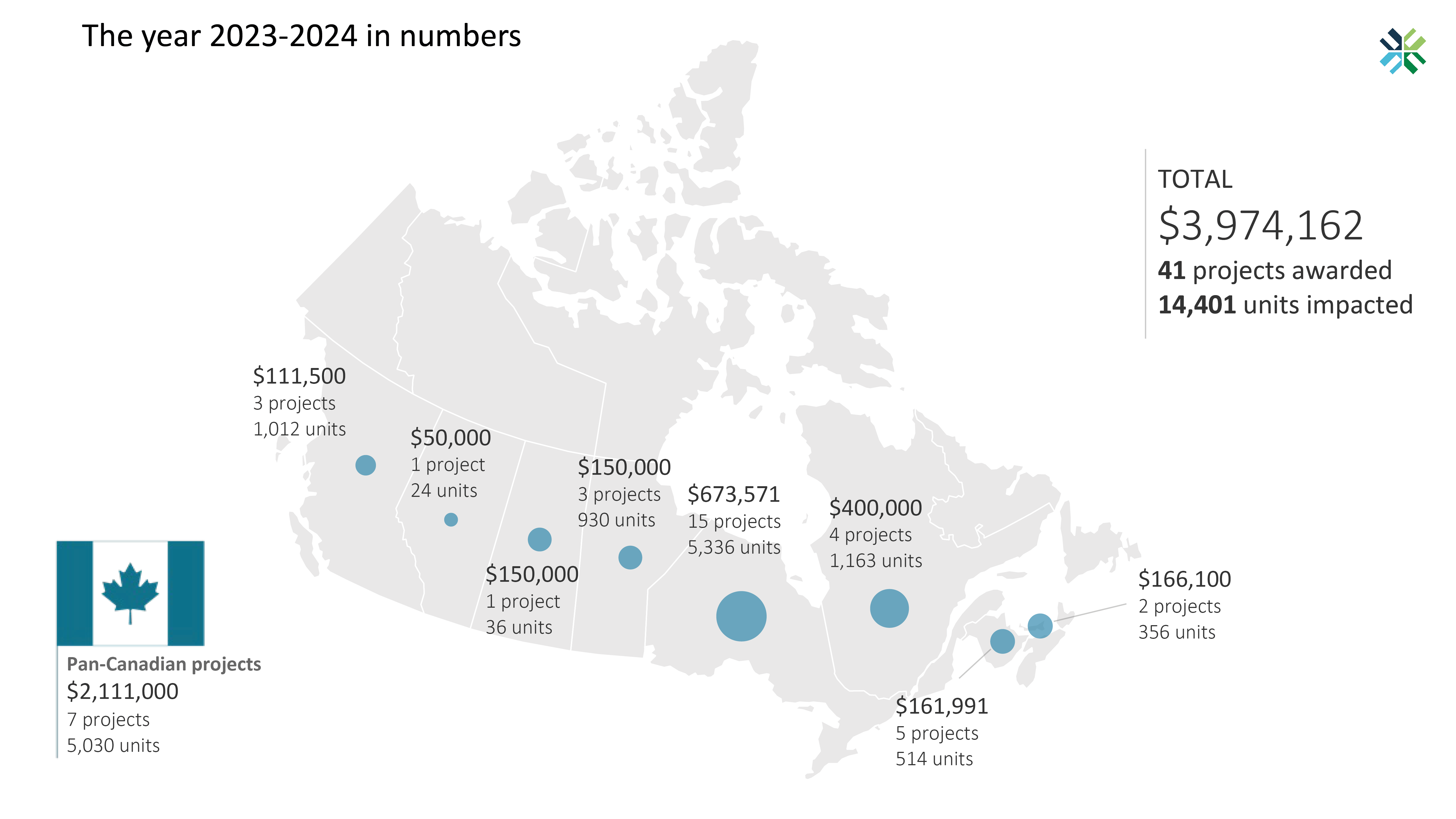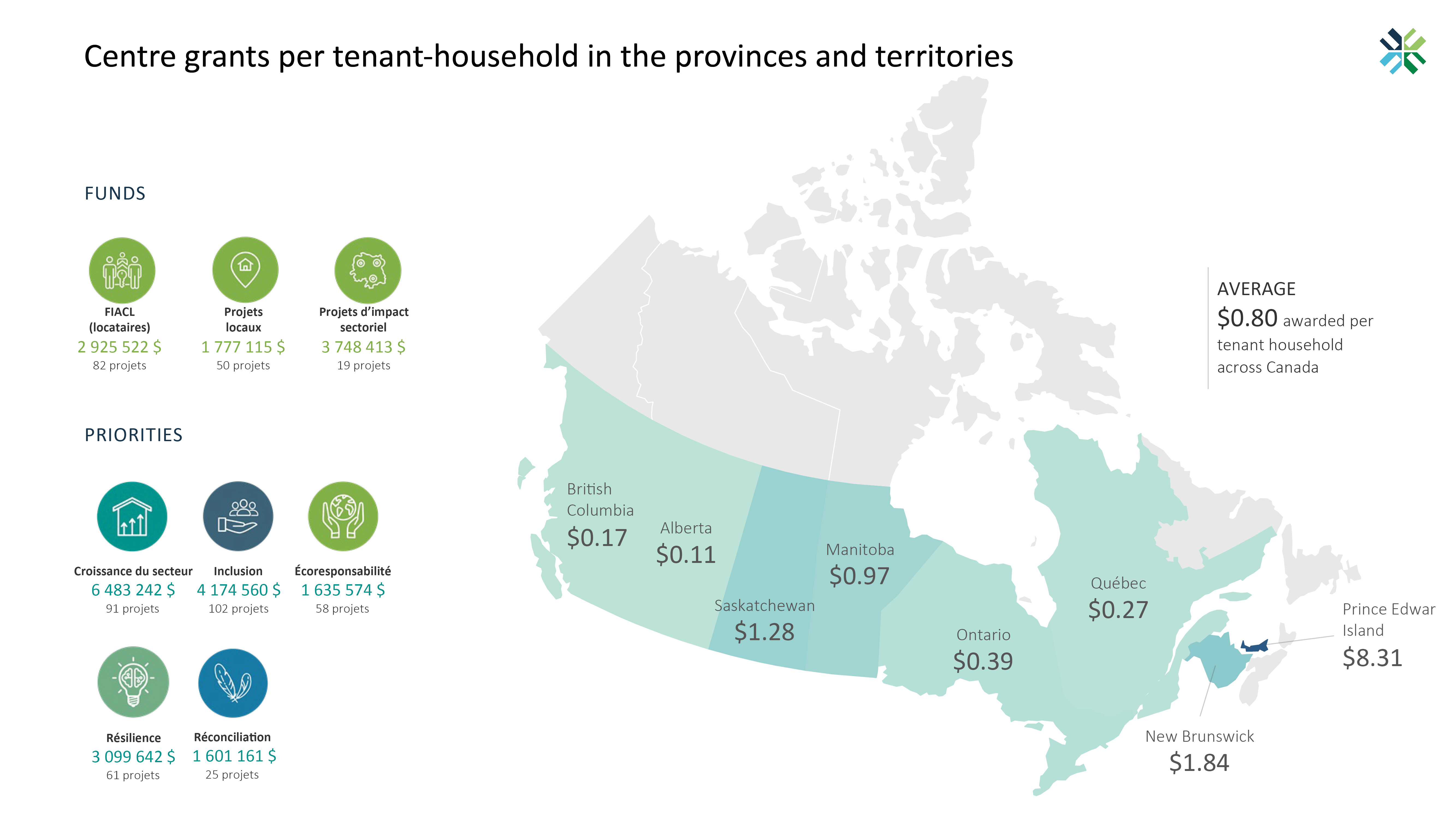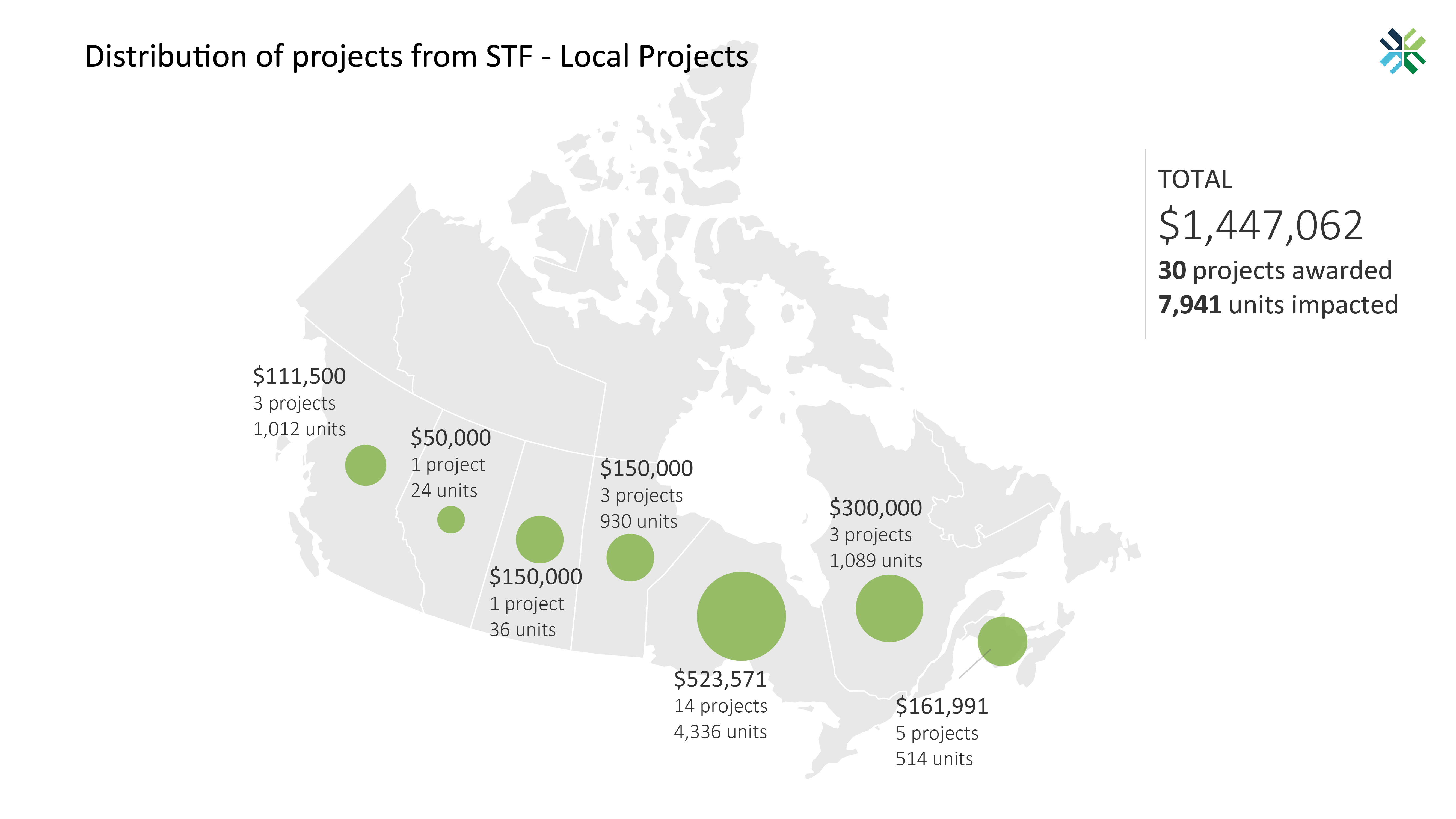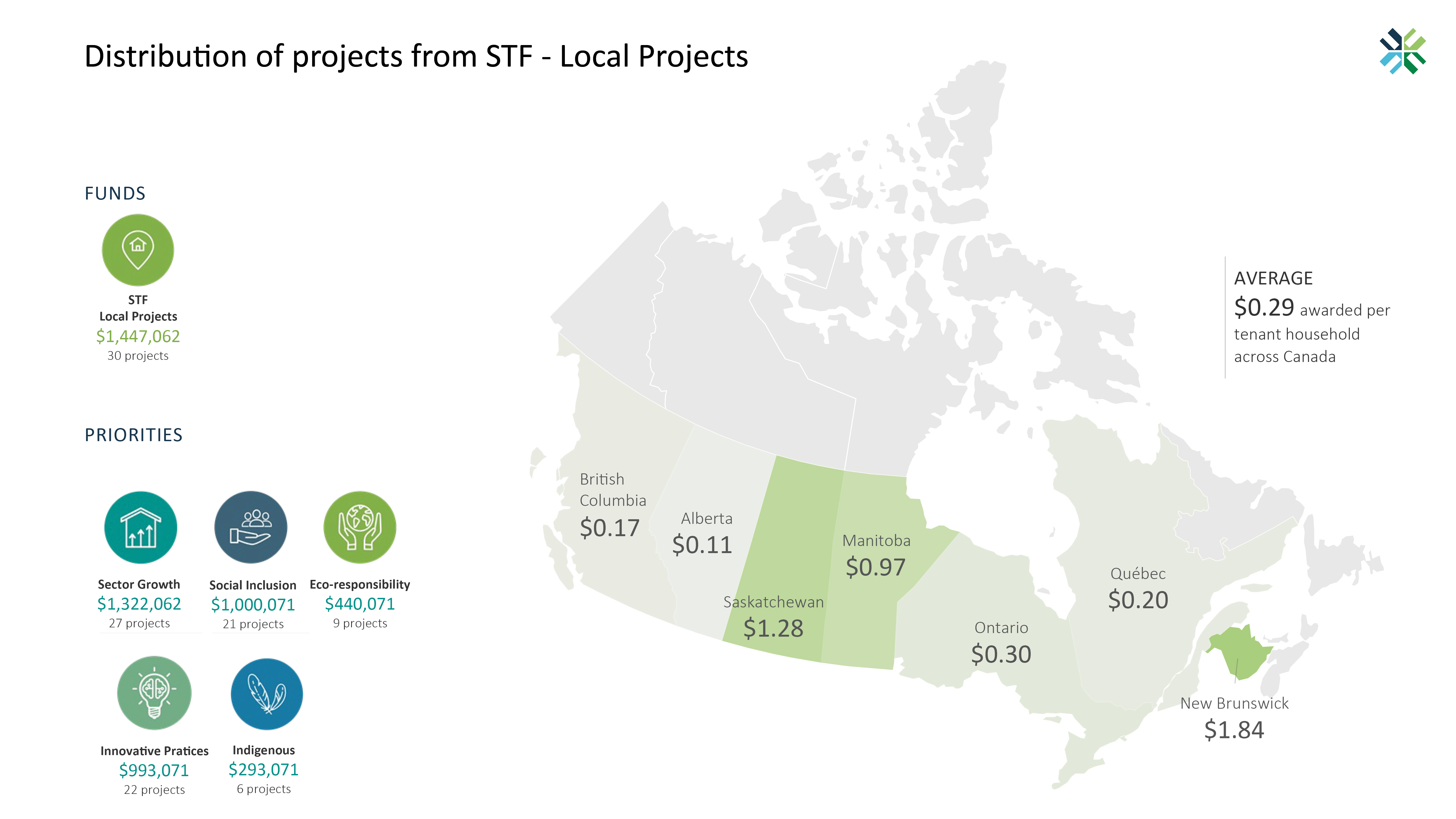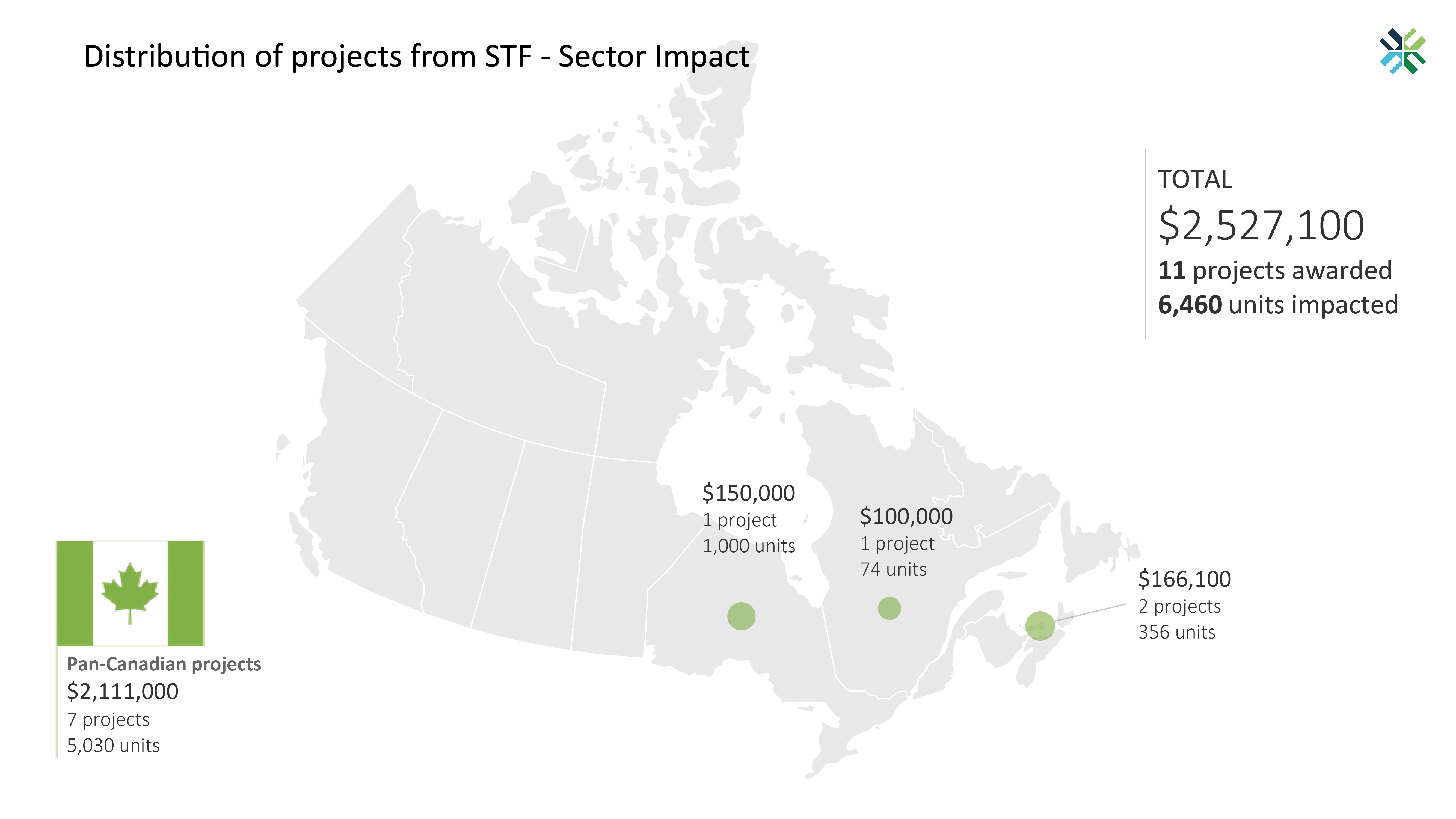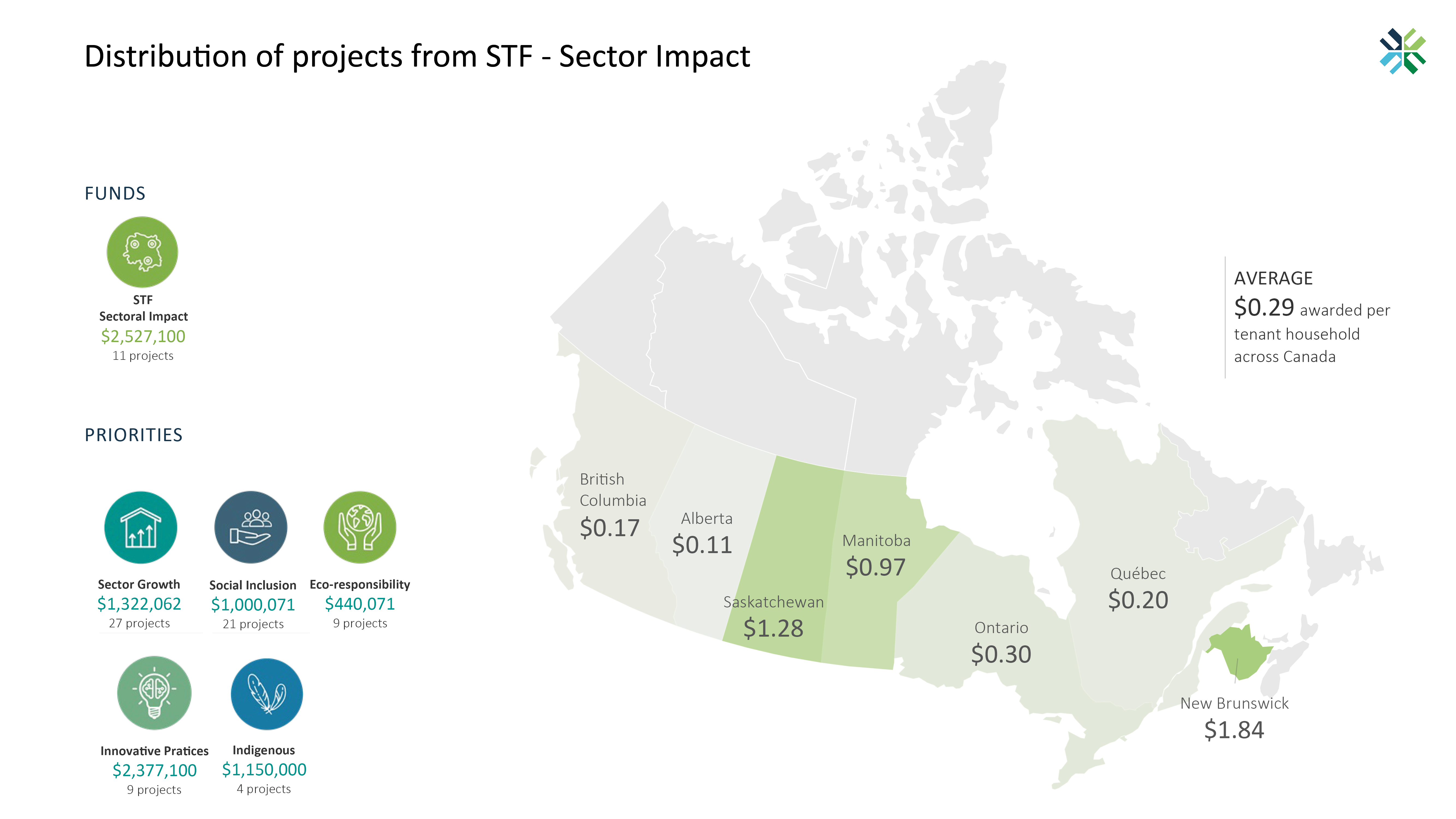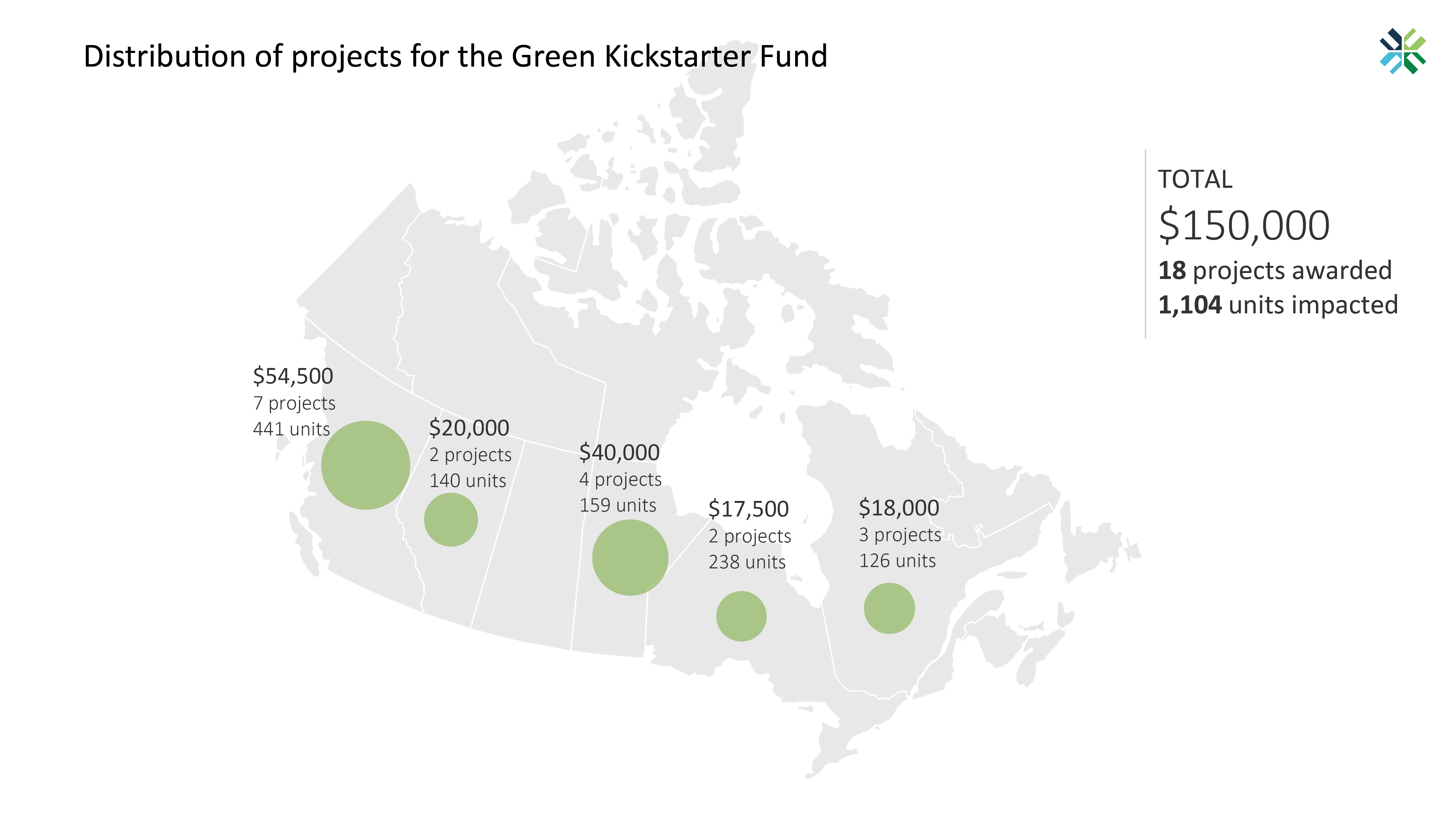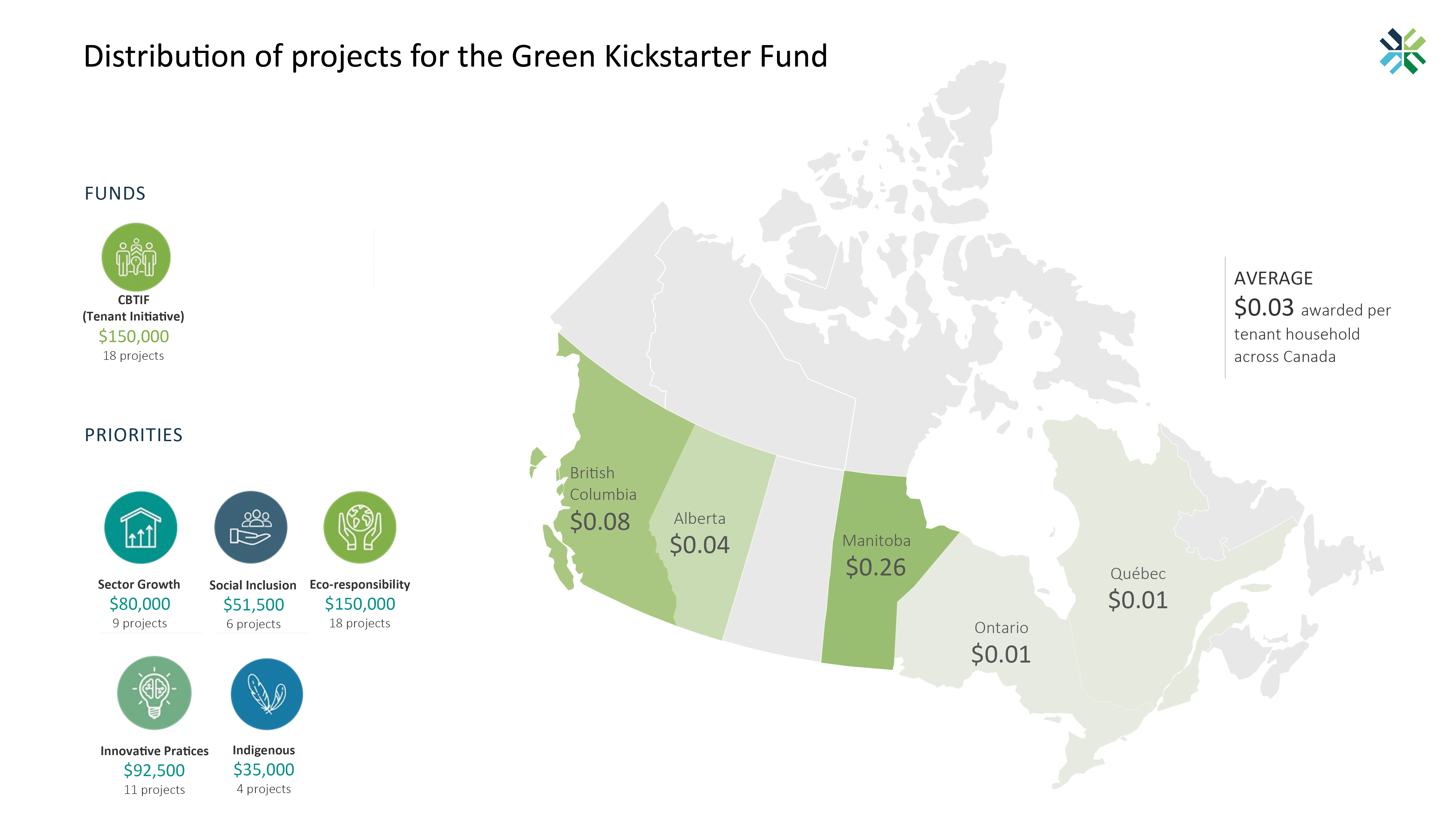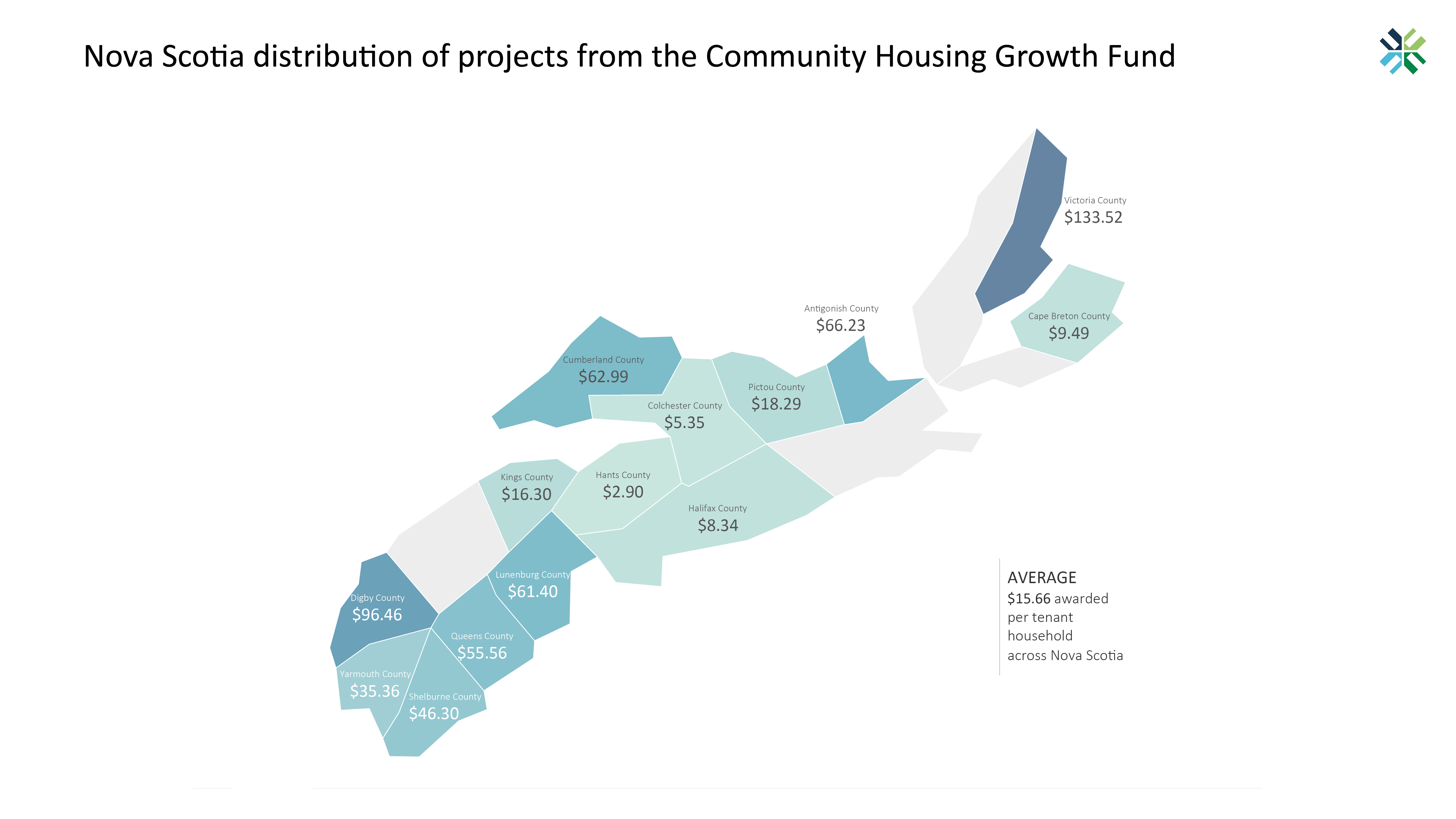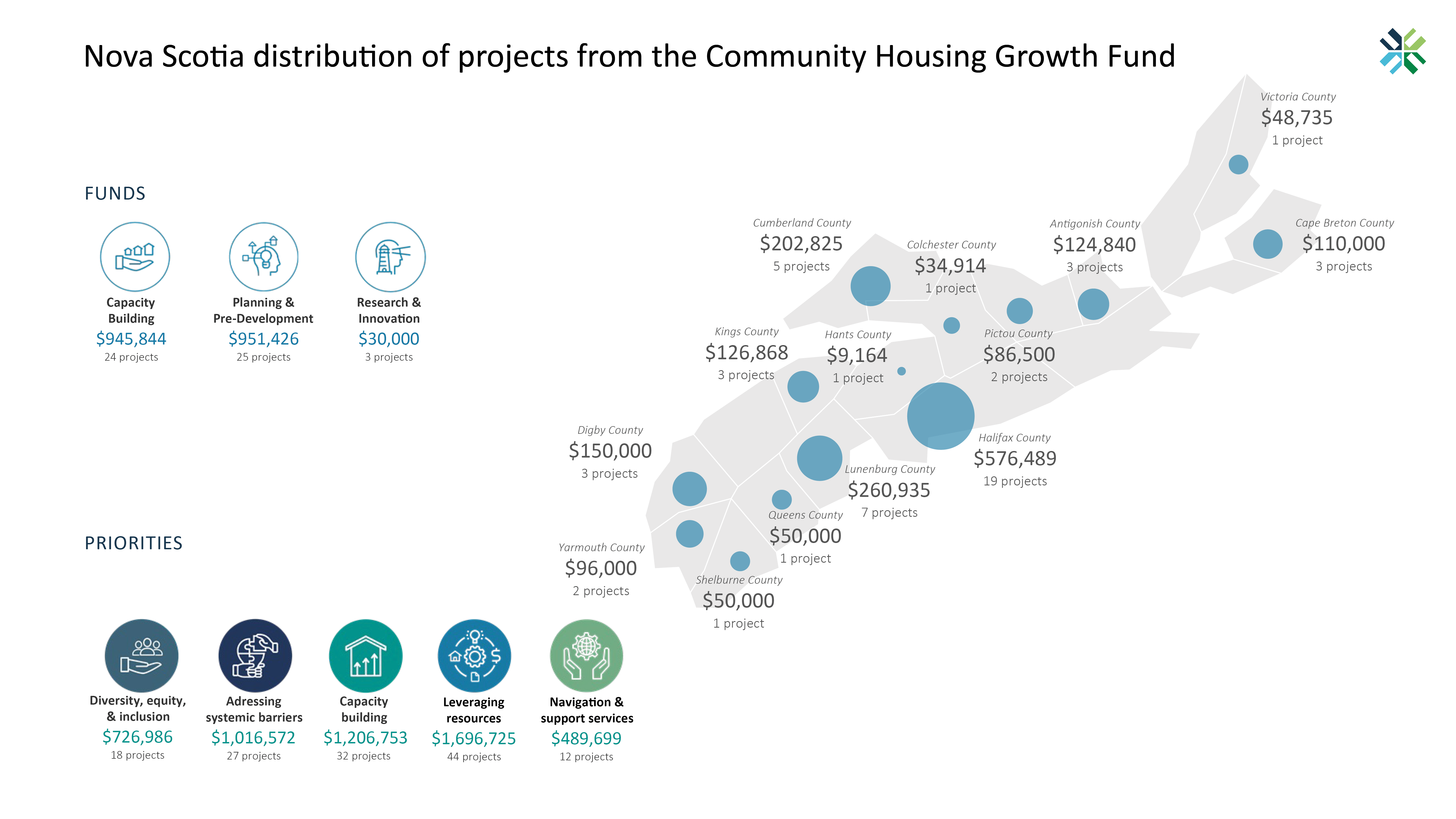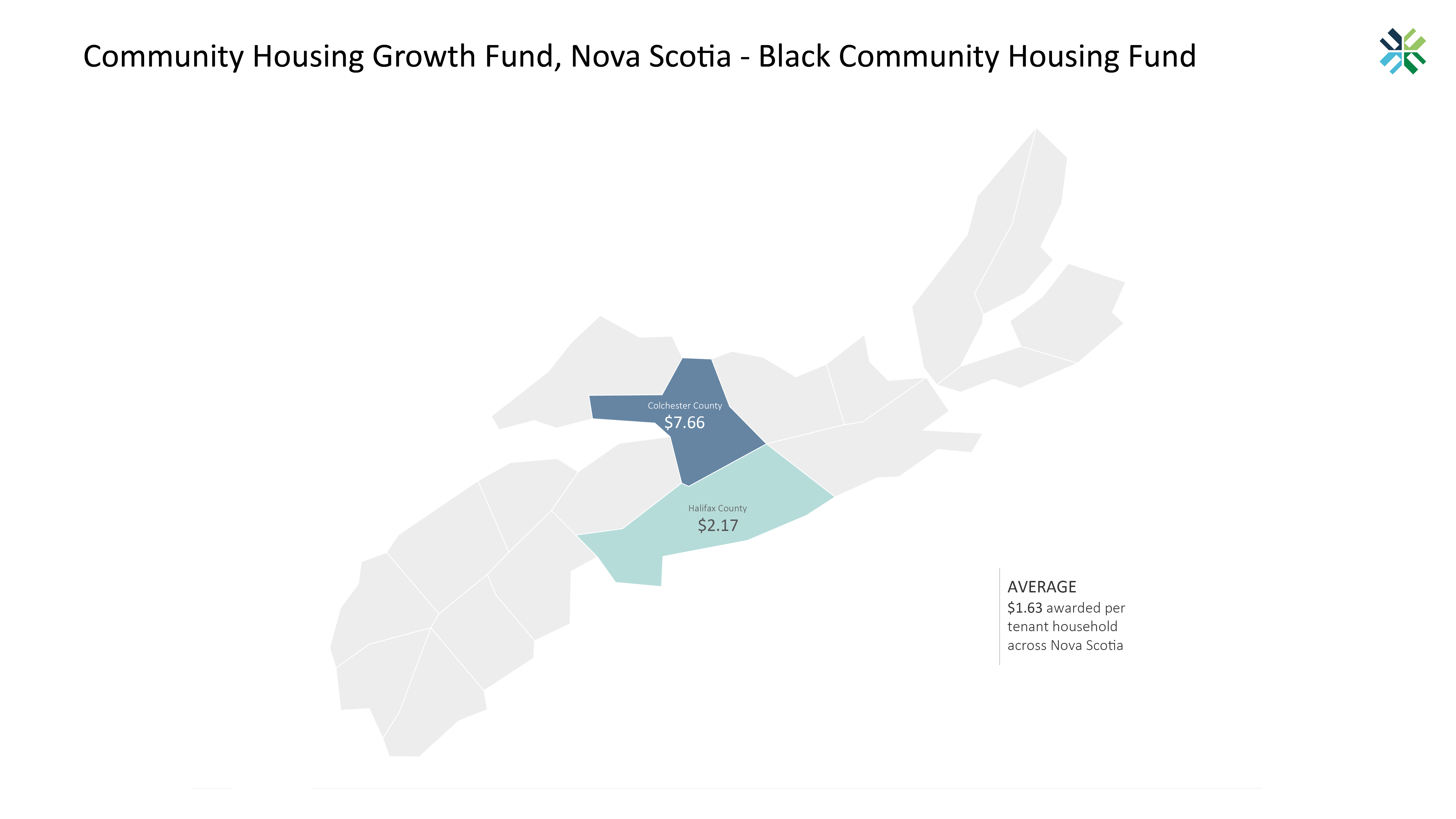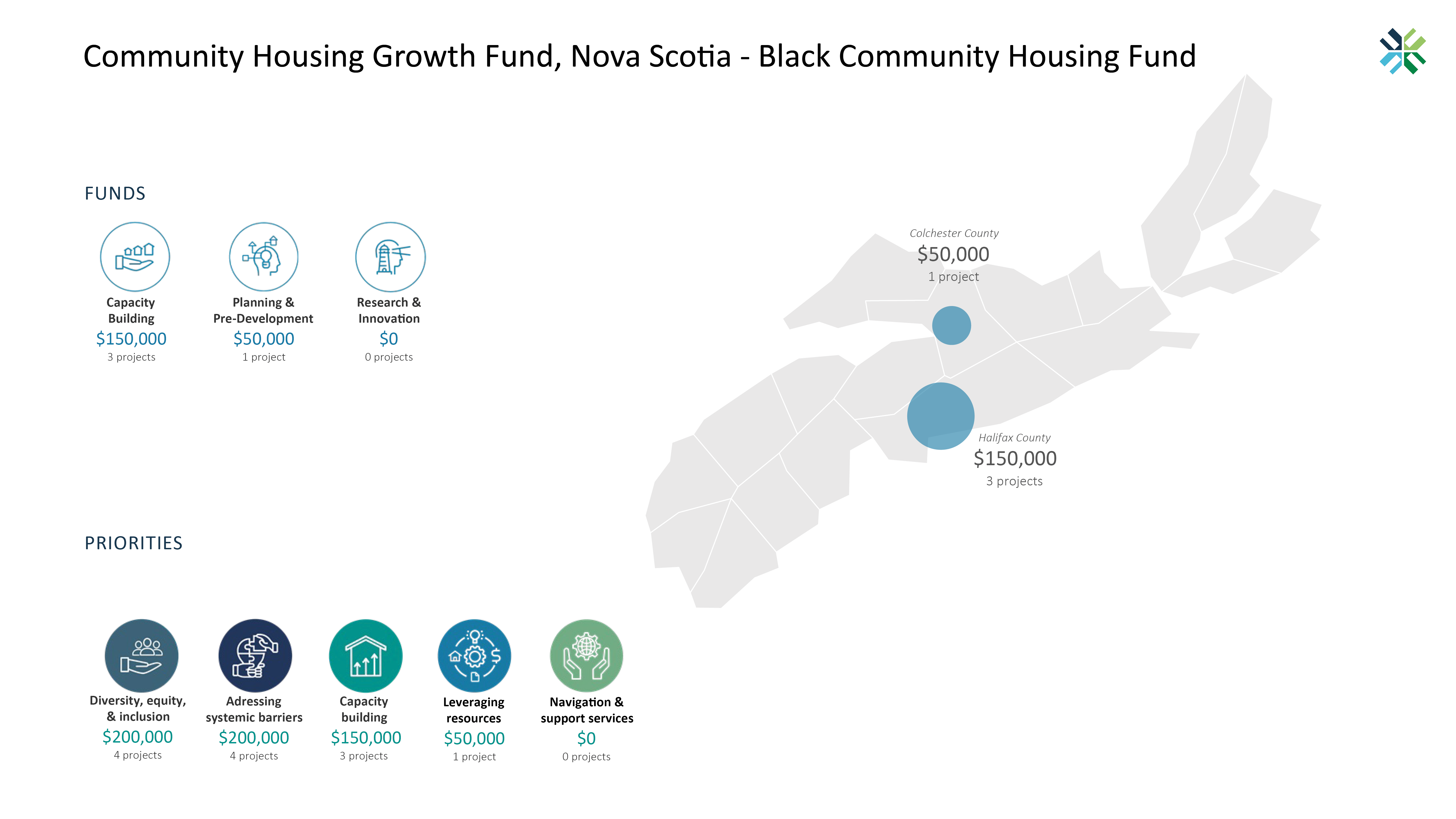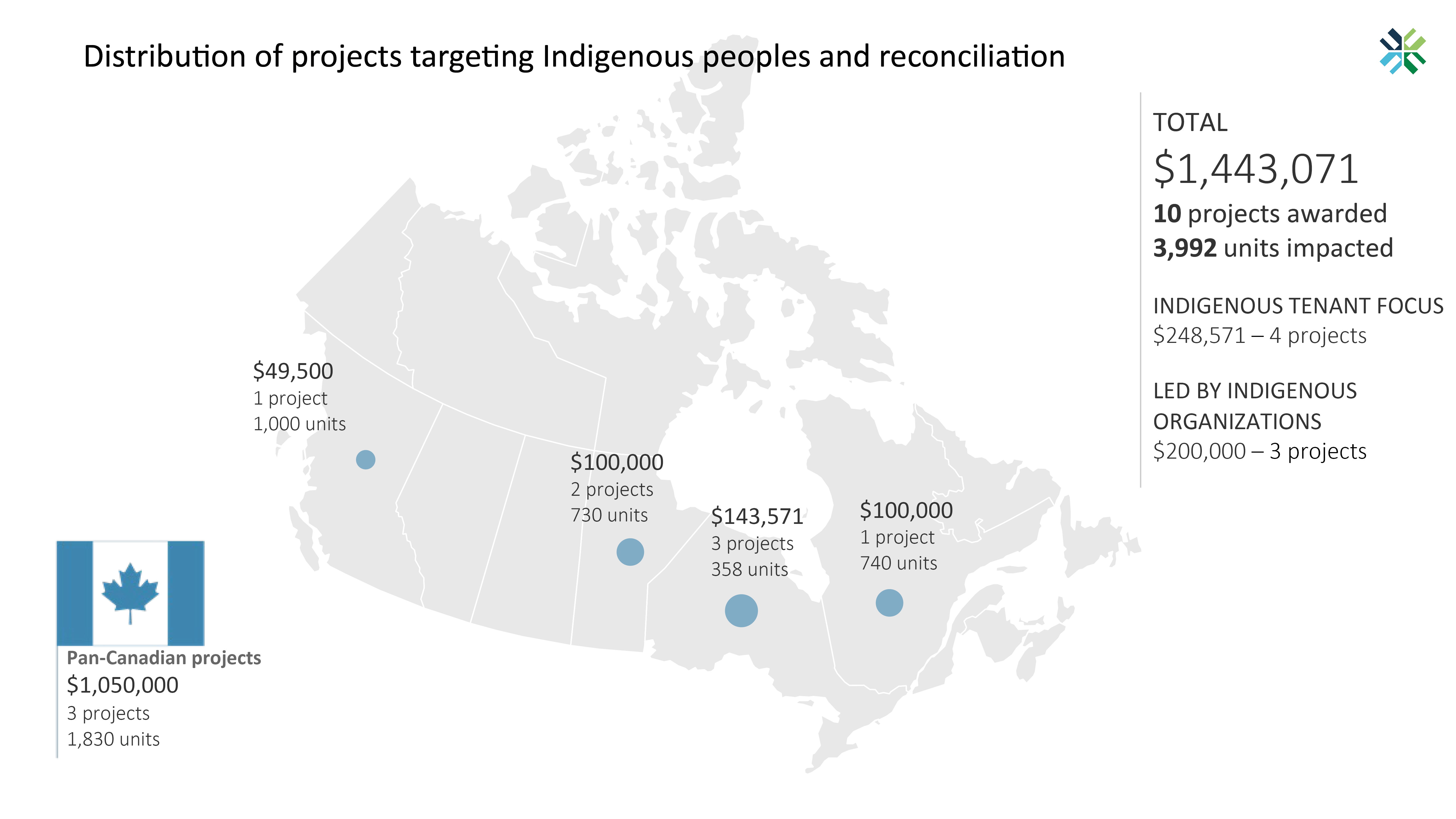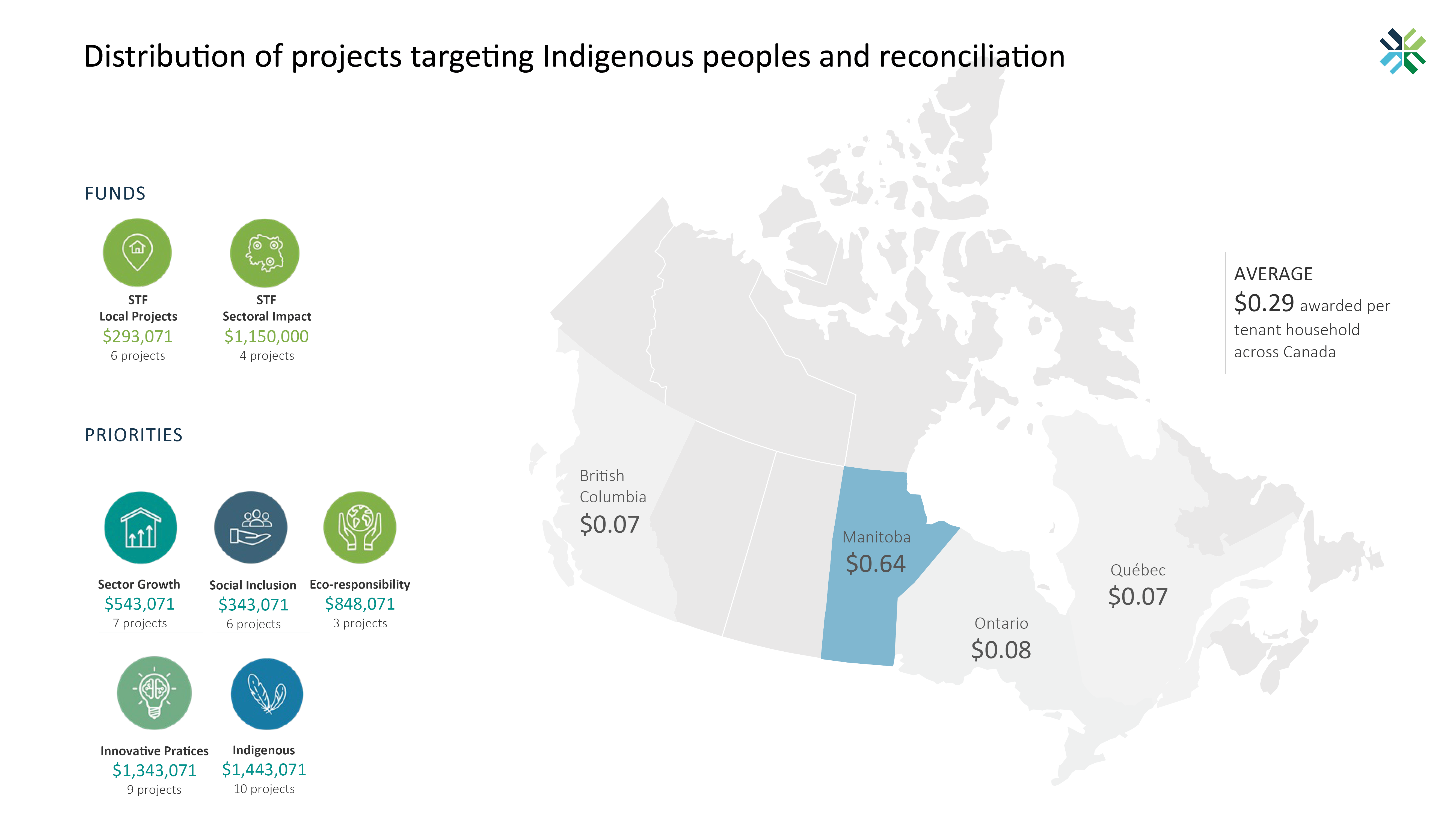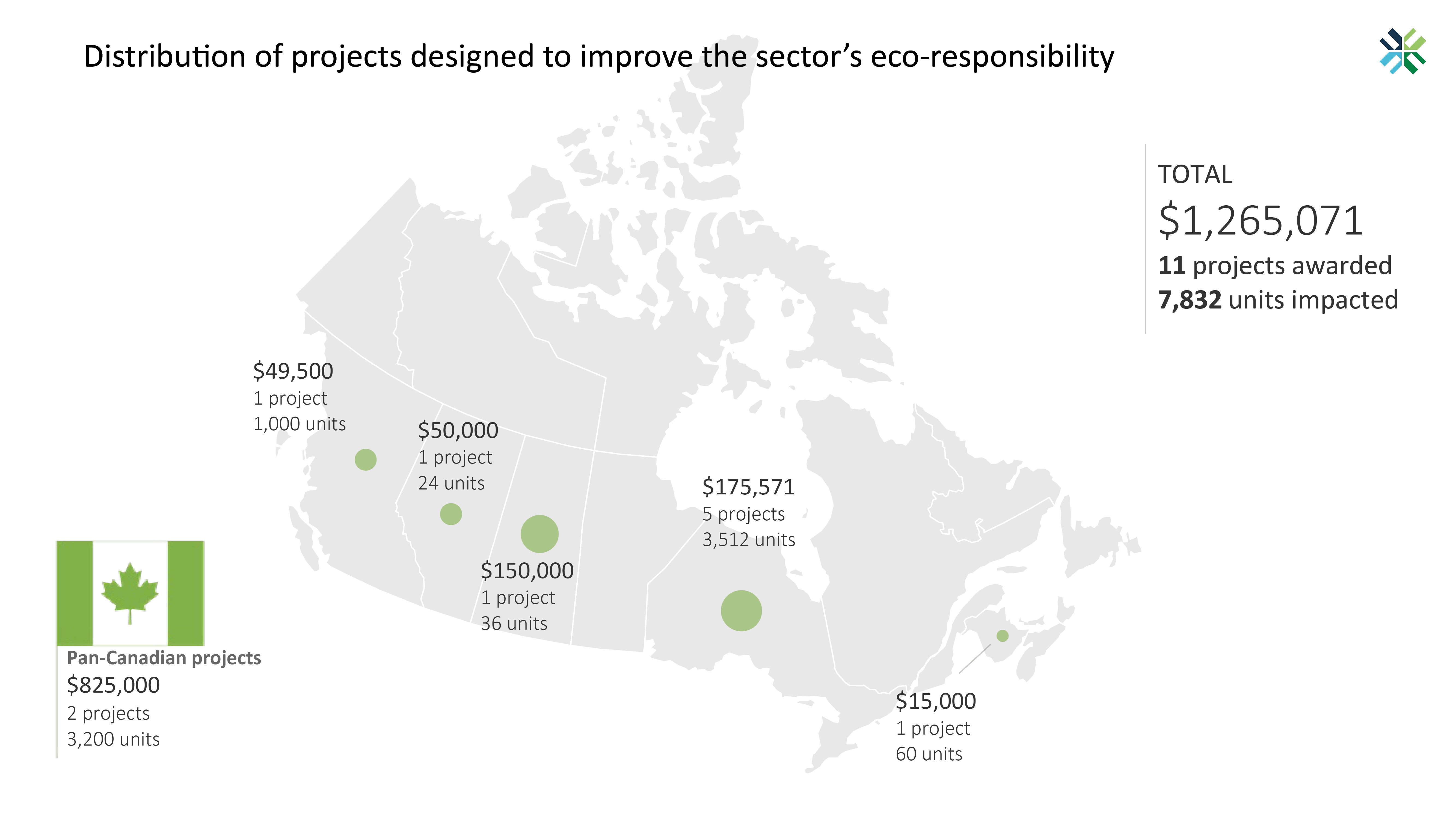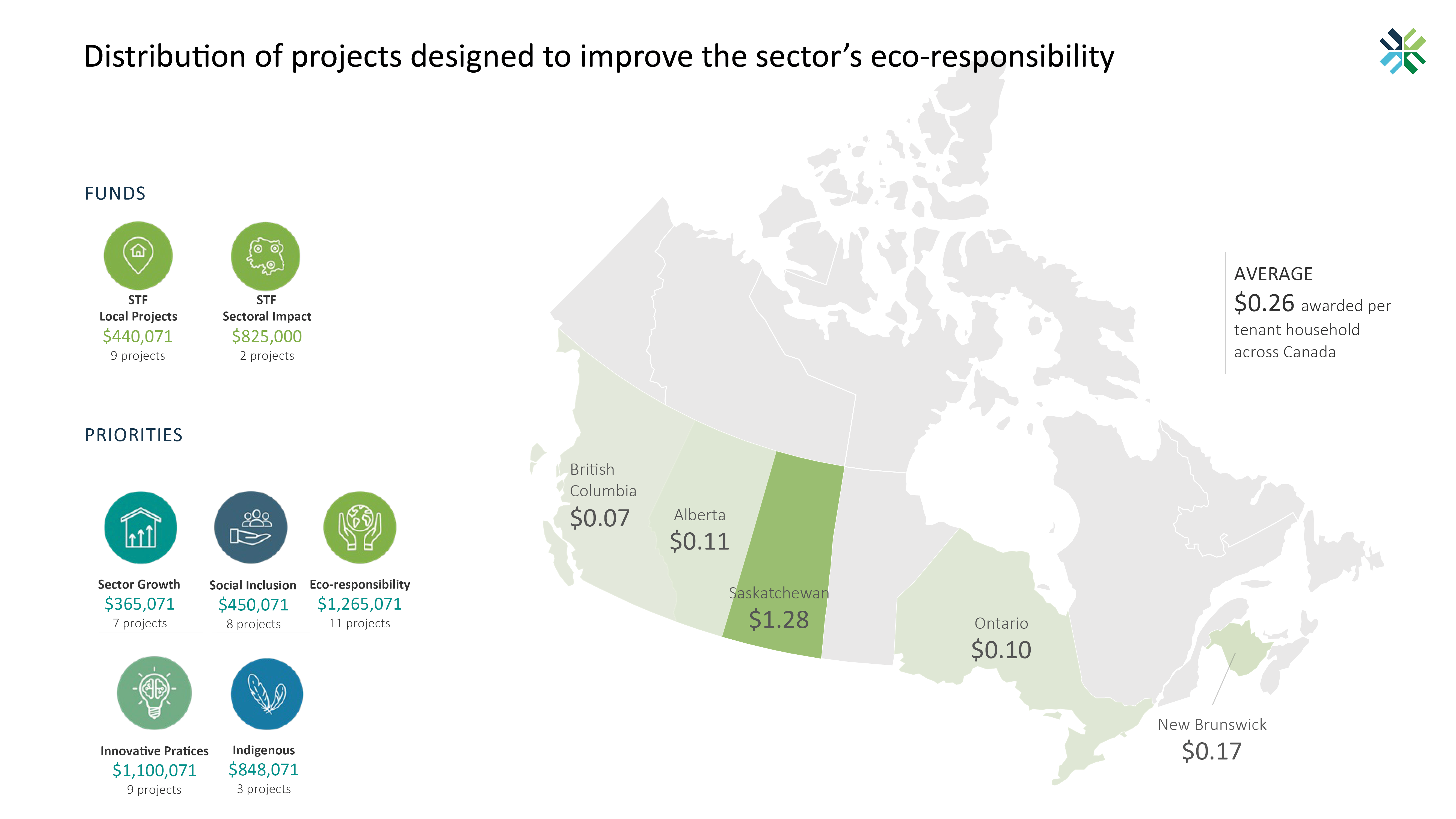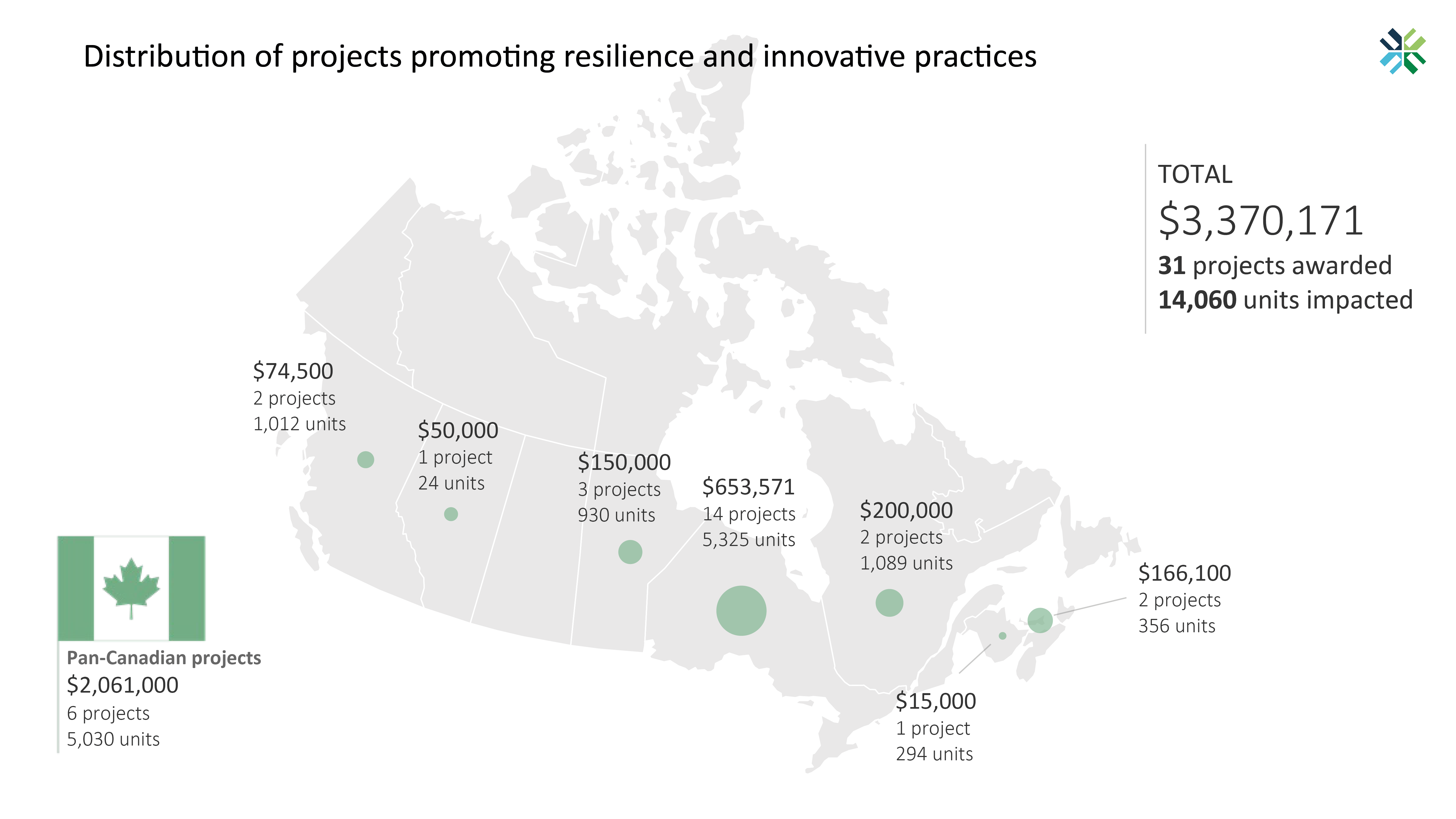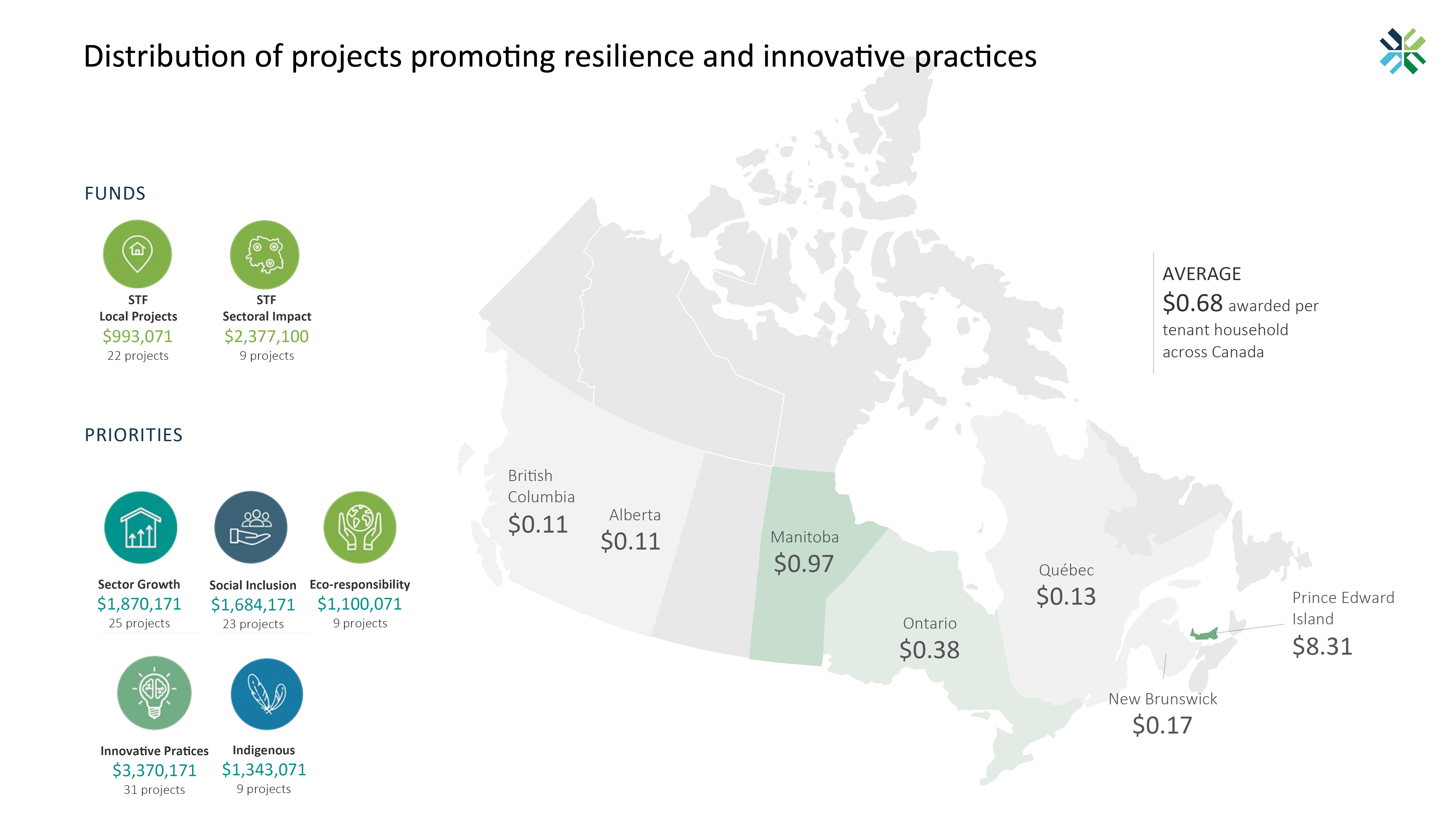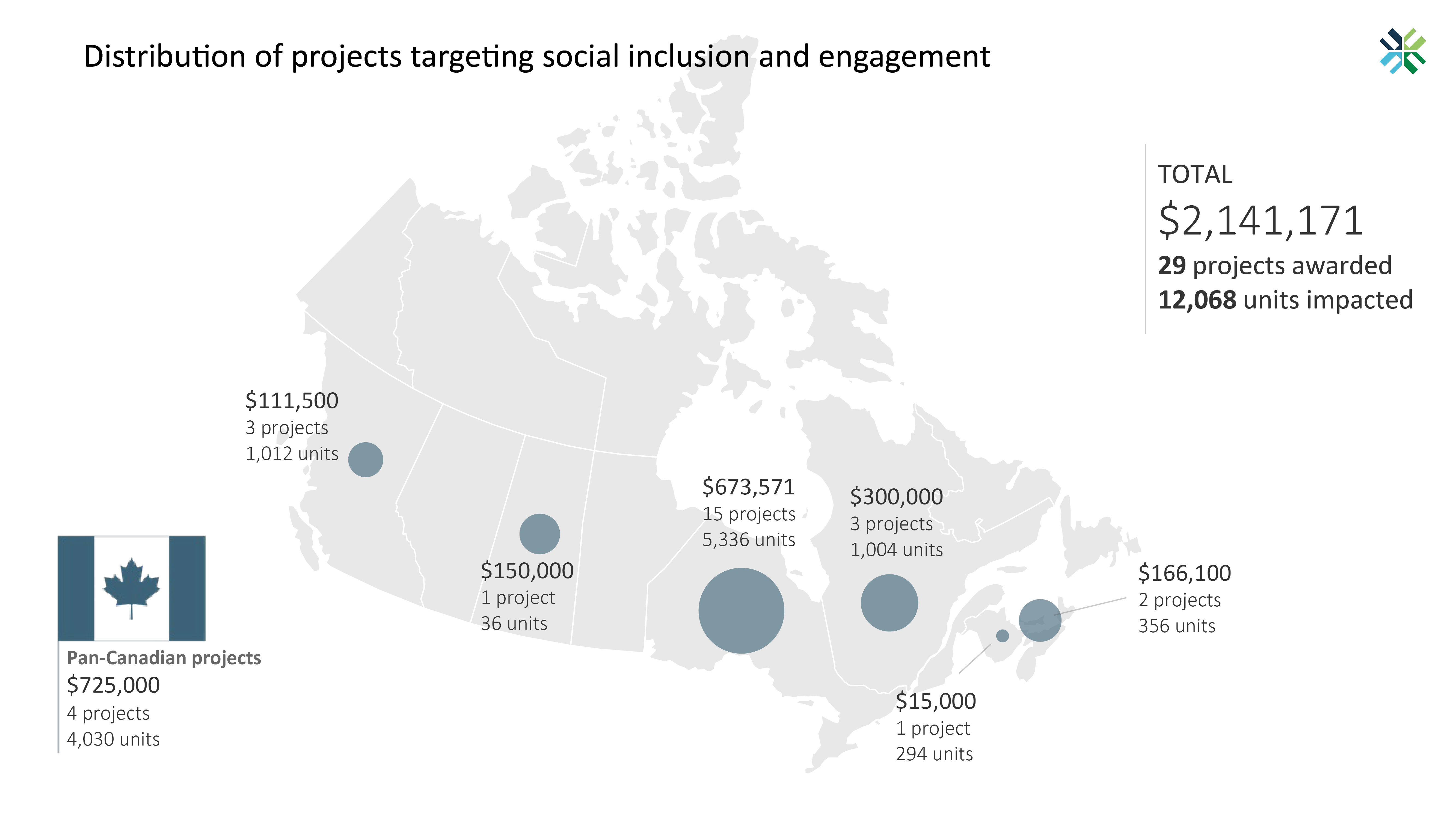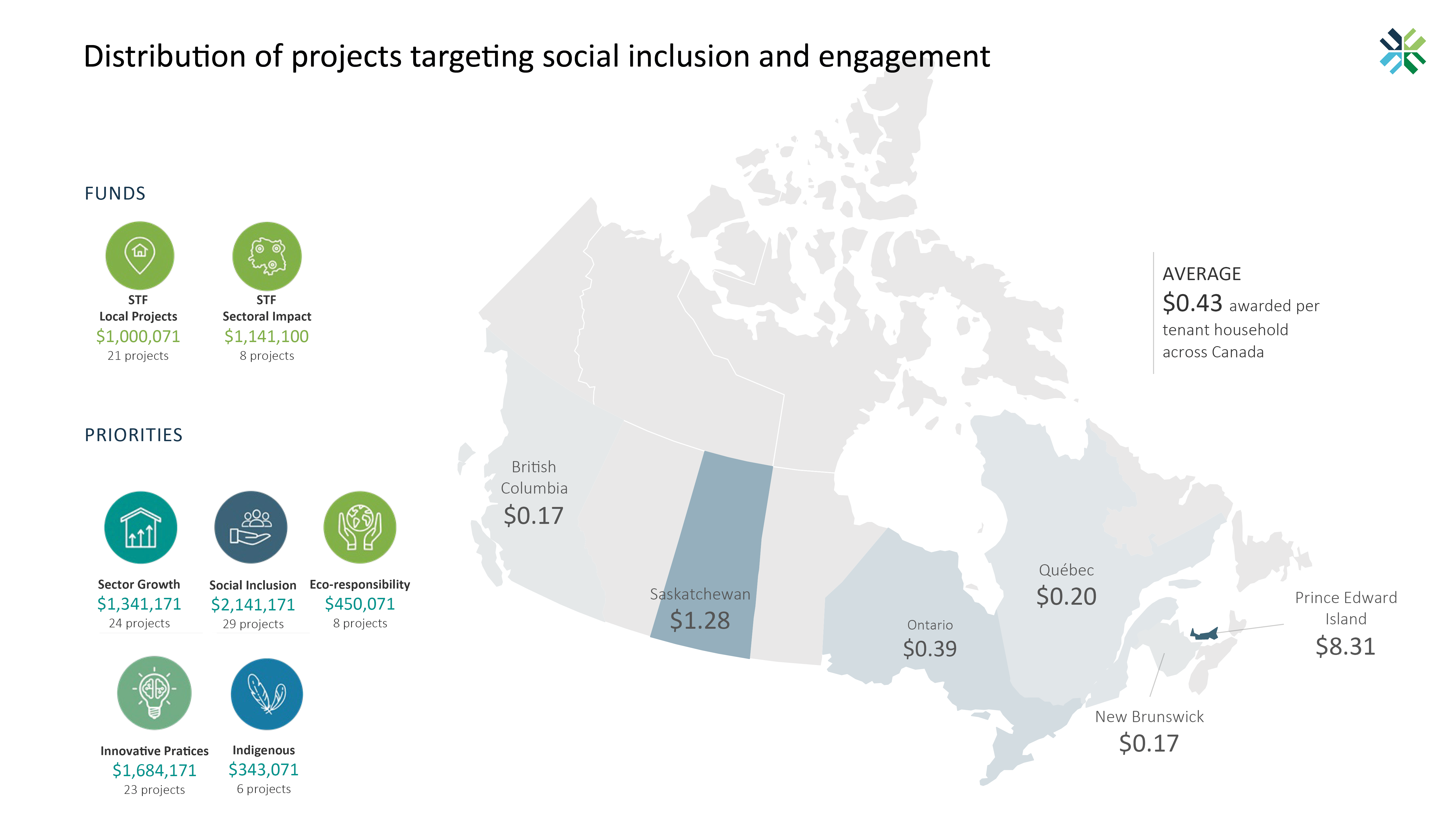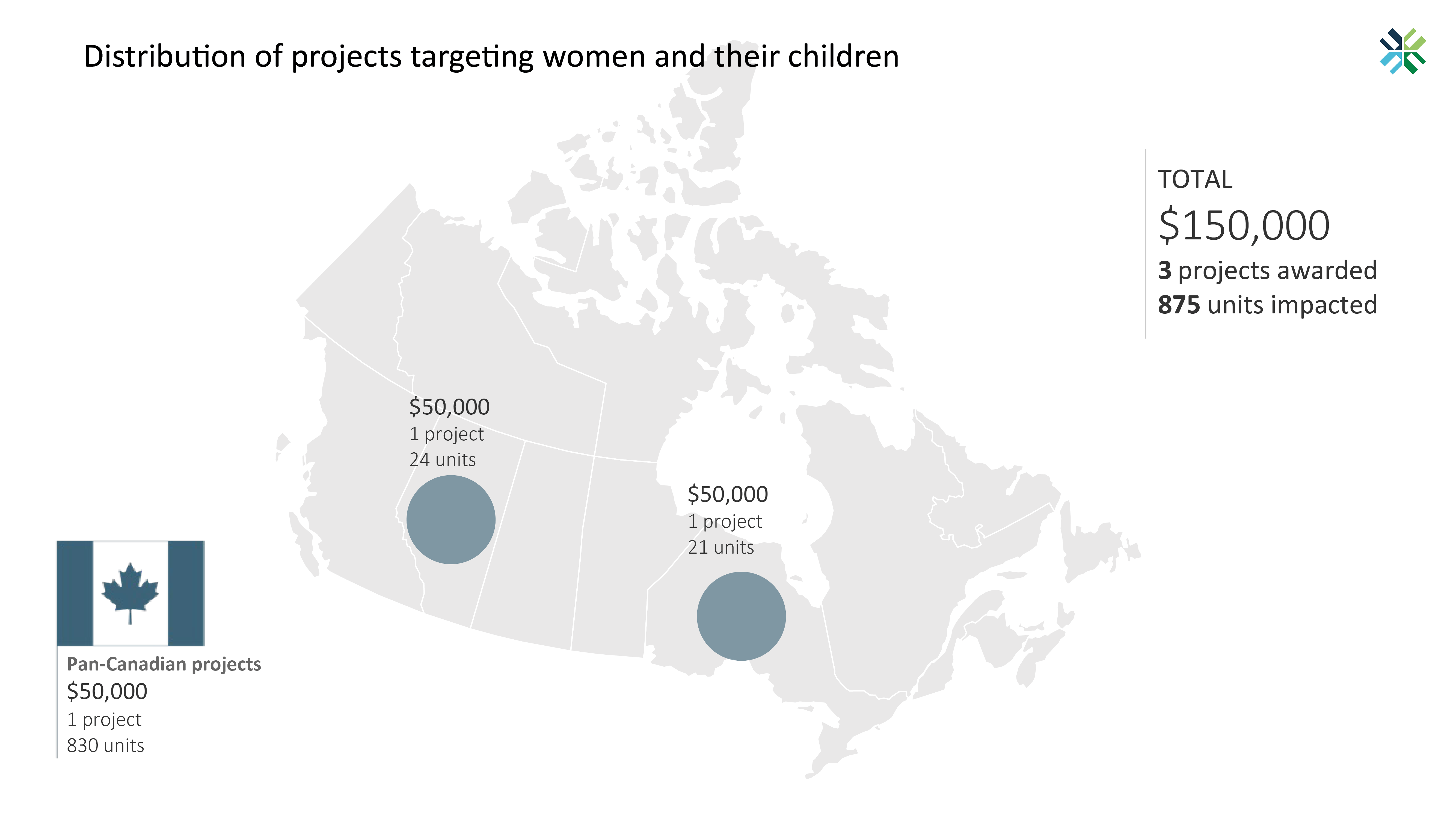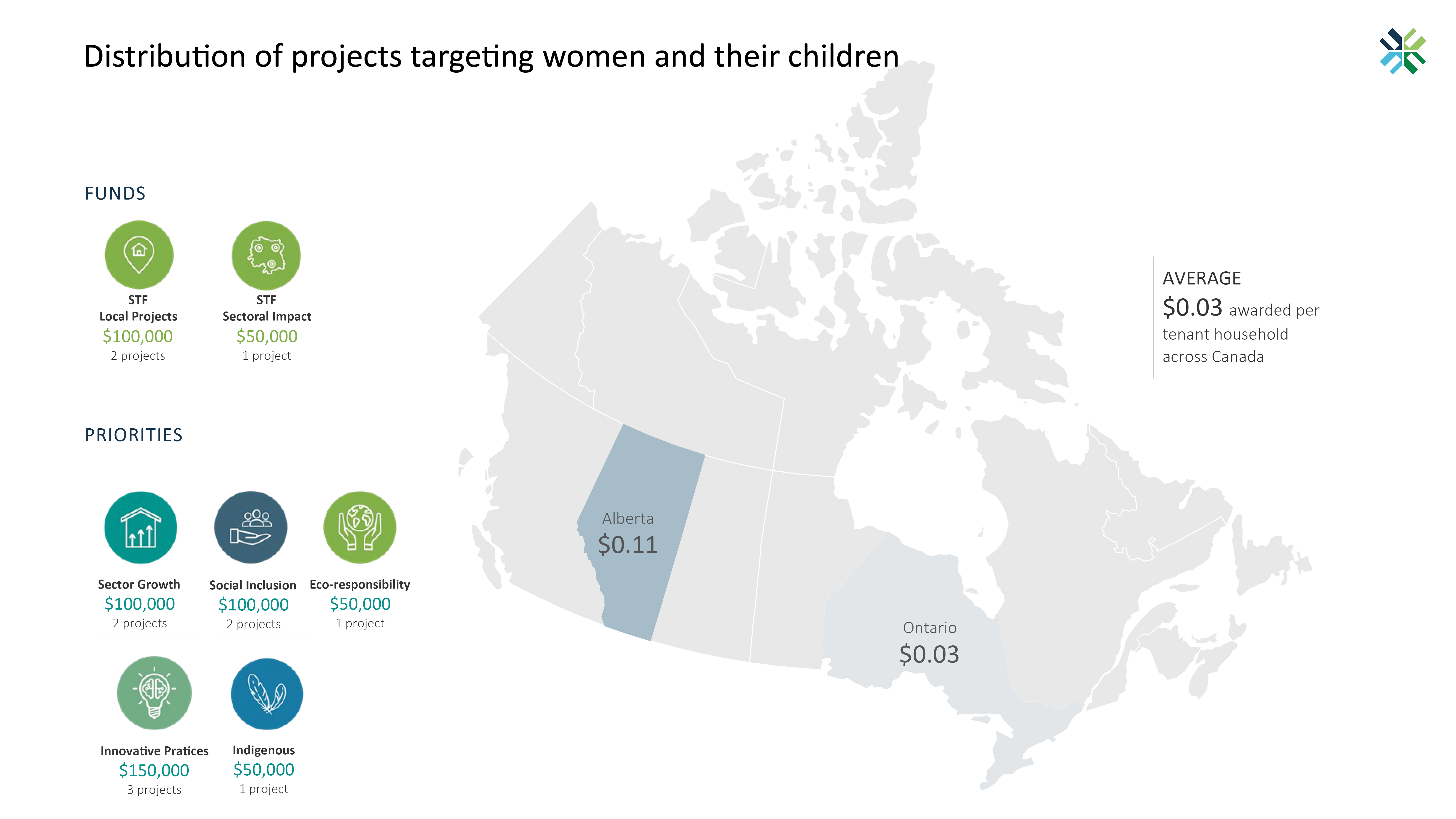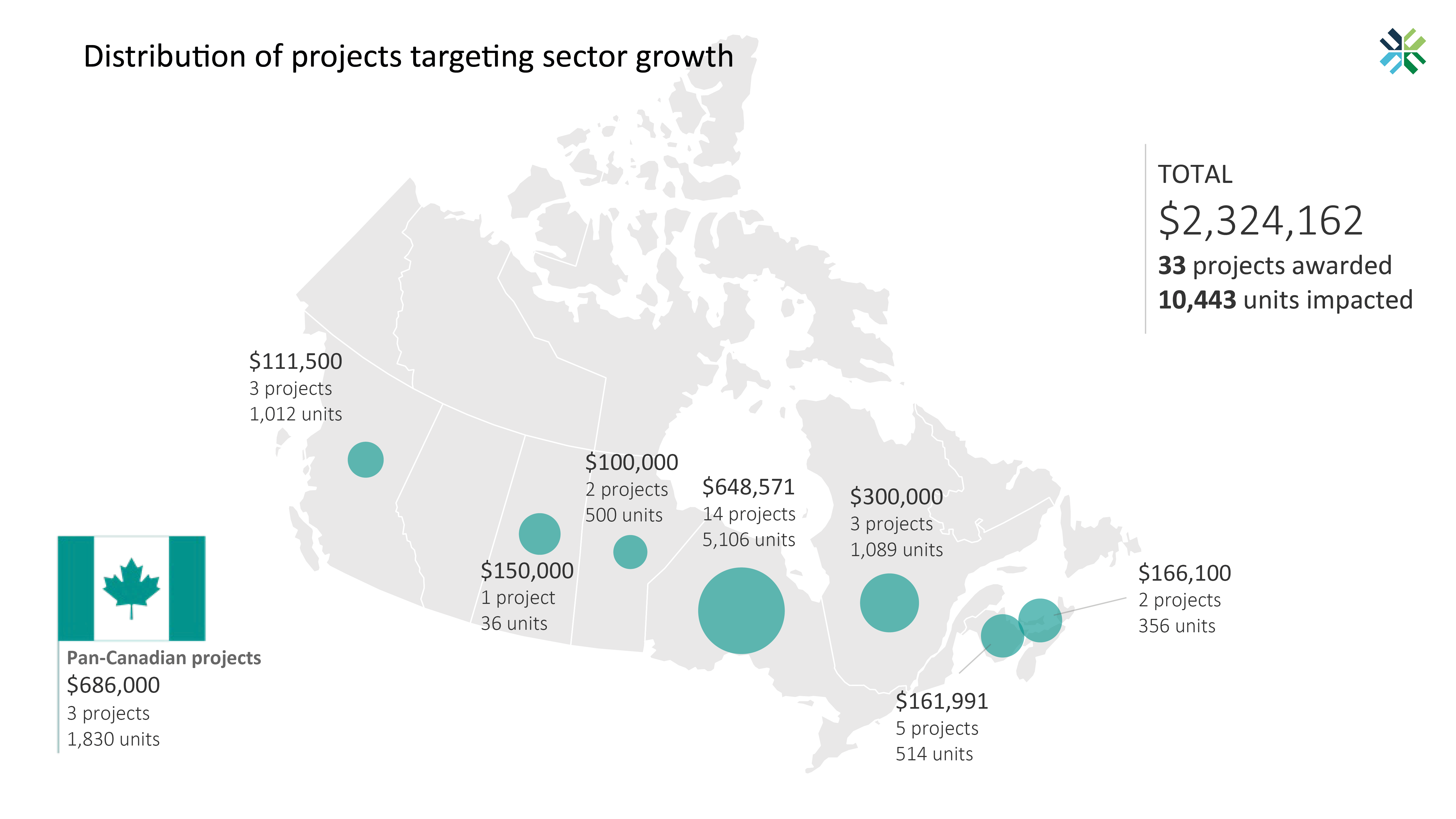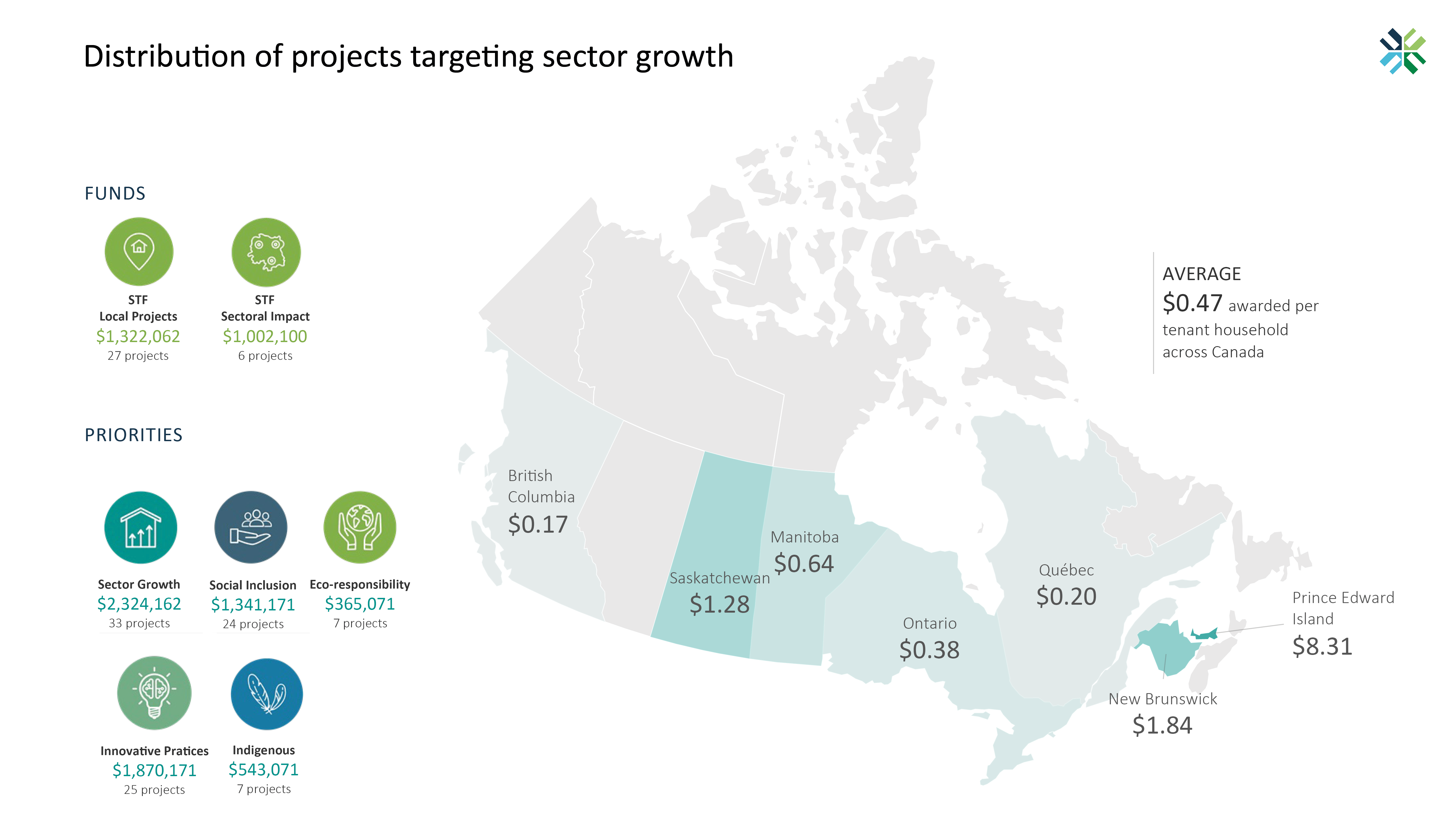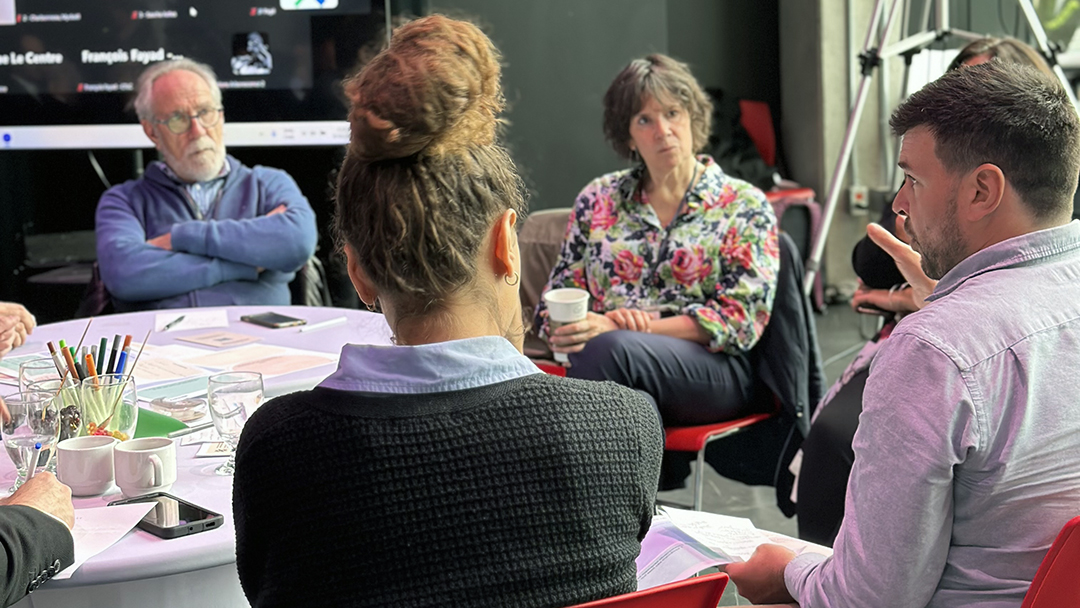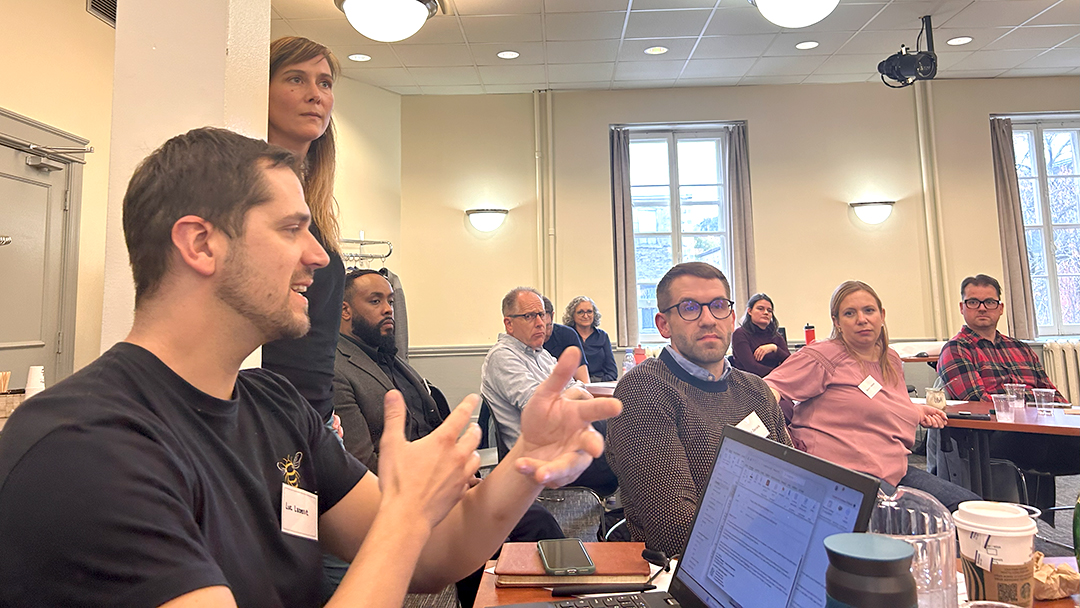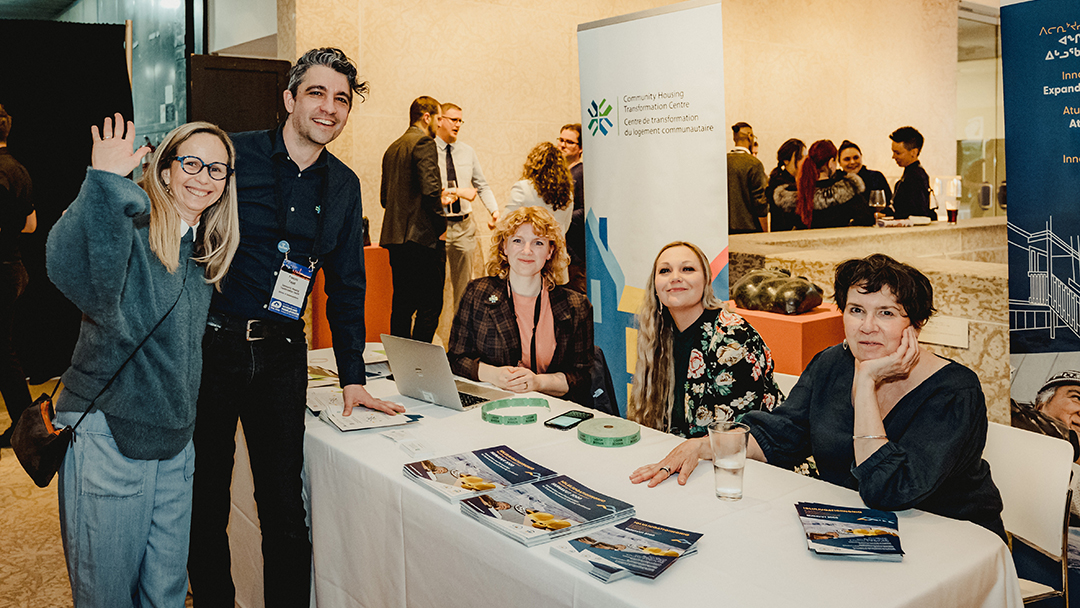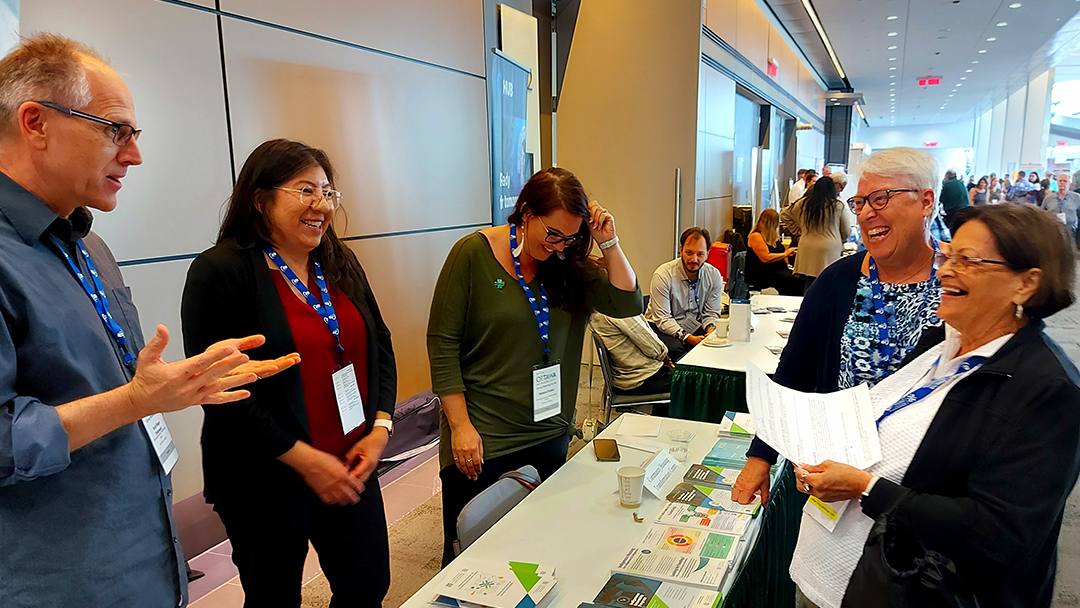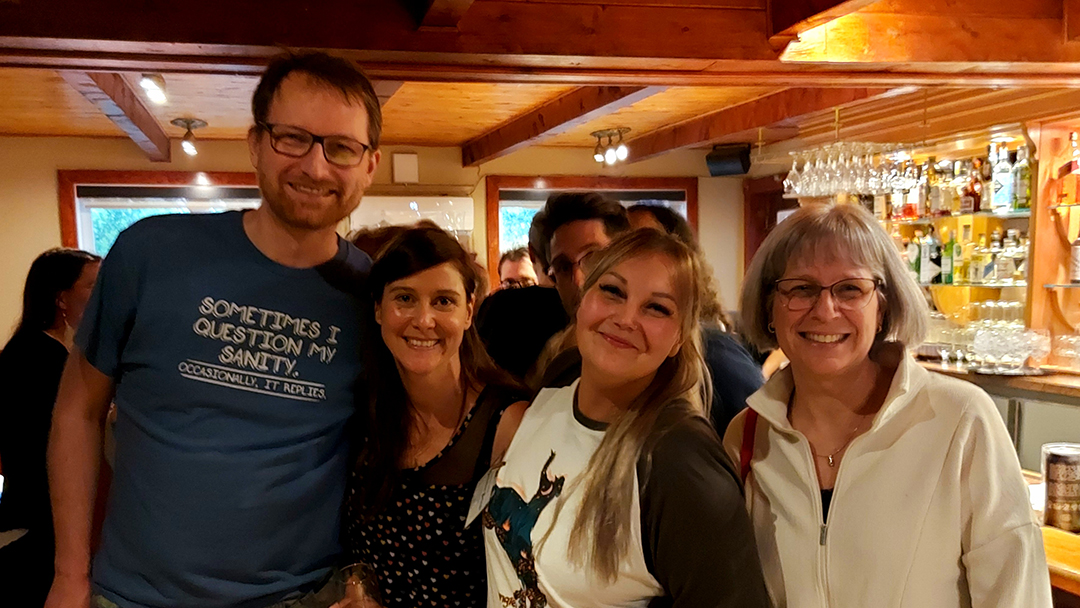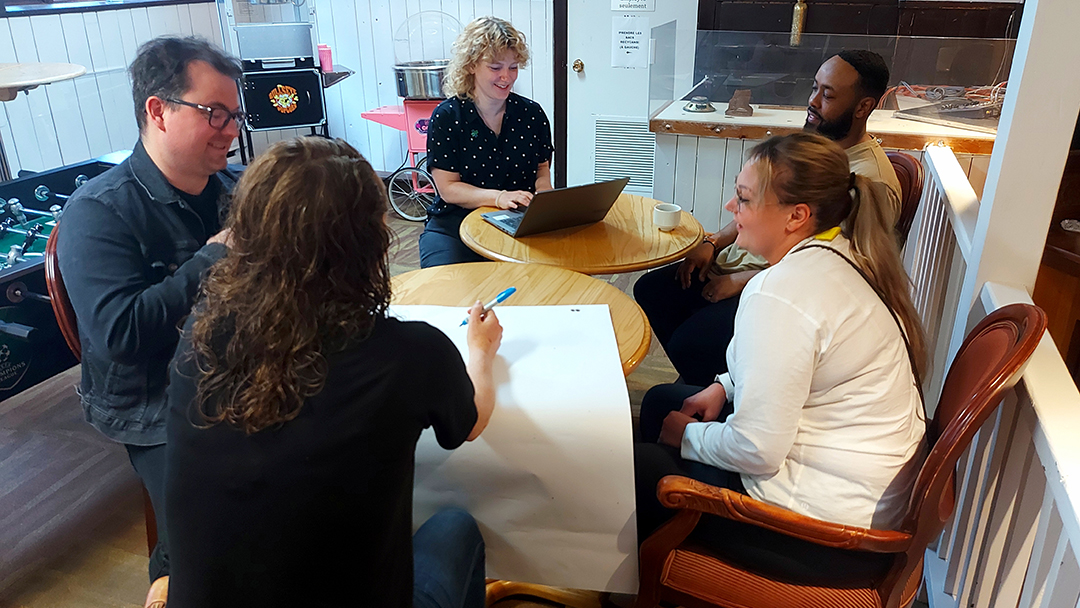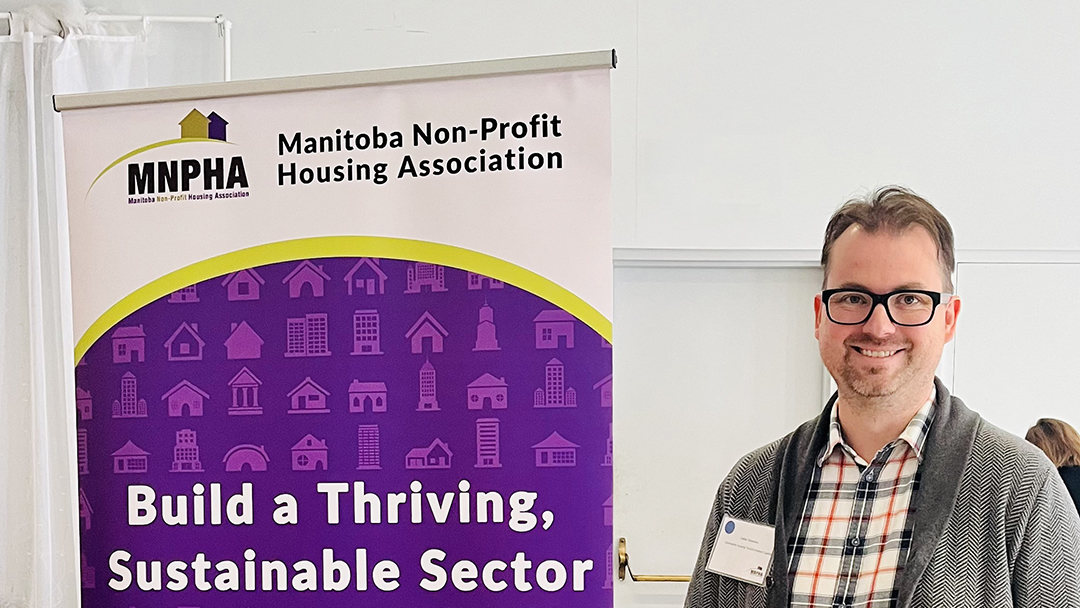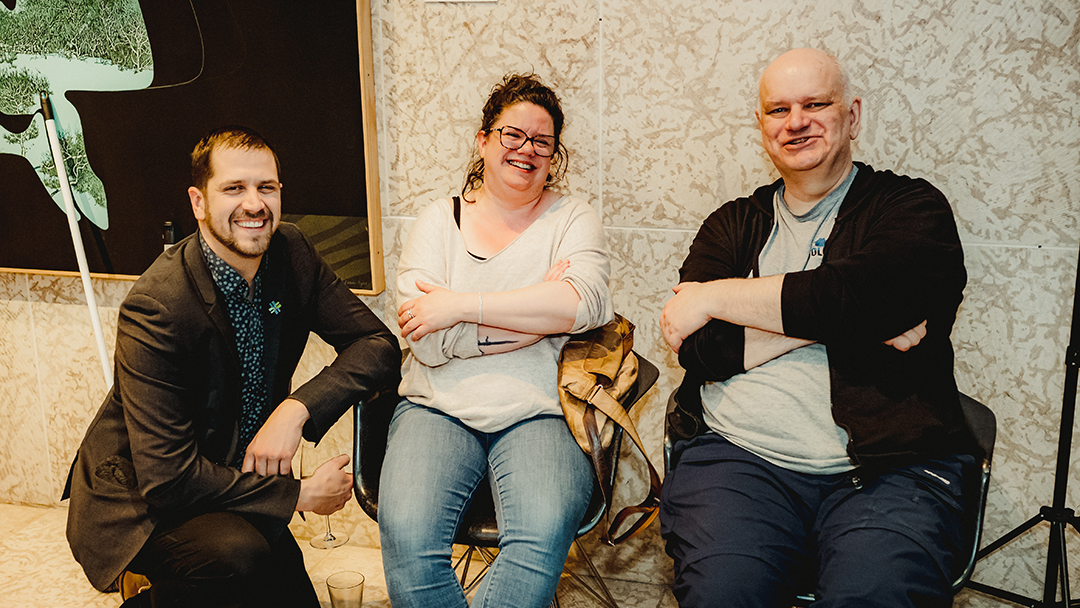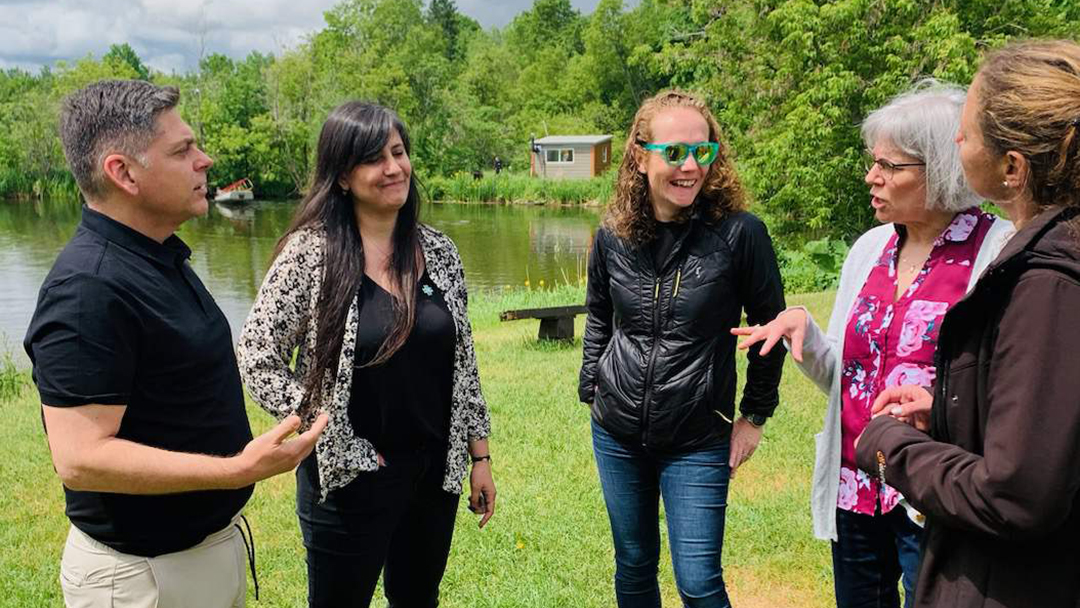Building a foundation for vibrant and thriving communities
Annual Report 2023-2024

Jill Atkey
President

Lisa Ker
Interim Executive Director
New directions
This was a year of big change and growth for the Community Housing Transformation Centre.
After a full year of discussions and planning, we have a new Strategic Plan for 2024–2028.
Much of what we want to accomplish in the next four years will set up the organization for a more sustainable future but more importantly, it will allow the Centre to continue its work with the community housing sector.
Our new vision is for a community housing sector united behind a goal of 20% of housing market share, and we want to achieve it by leveraging the sector’s strengths.
The following three priorities will help us attain that vision:
- Be a catalyst to preserve and increase the number of homes within a thriving community housing sector.
- Develop resources, people and processes to diversify leadership and improve sector viability.
- Be a thriving organization.
Of course, having a new four-year plan also provides us with a road map which has already united the Centre’s team and provided more focus for the work ahead.
The organization is growing, to be sure. You’ll see in the pages of this annual report that the opportunities for transformation are significant and outline the case for the sector’s continued growth. Sustained growth in the sector and the Centre will help us meet the challenges of the future and to meet the goal we all share: a country where everyone has a home they can afford.
Jill Atkey and Lisa Ker
Building a foundation for vibrant and thriving communities
Since 2019, the Centre has been developing its expertise, credibility, and networks to support the community housing sector. During this time, the sector has evolved, and we are proud to have contributed grants, tools and opportunities for partnerships.
And yet, much remains to be done to stop the significant loss of affordable housing across the country. The community housing sector has a role to play in correcting this imbalance. 2023–2024 was an opportunity for the Centre to reflect on the best course of action to take to help the sector strengthen its role in correcting this imbalance. The resulting Strategic Plan 2024-28 updates the Centre’s vision and mission.
Our vision is to unite the sector around a 20% housing market share by leveraging its strengths.
Our mission is to transform Canada’s community housing sector by catalyzing partnerships, new ideas and resources.
Our work throughout 2023-24 focused on:
Building growth
Community Housing Growth Fund
The Community Housing Growth Fund (CHGF) model has been a resounding success since its inception in Nova Scotia in 2022. It contributed to the launch of the Nunalingni Piruqpaalirut Fund in Nunavut last year and the Newfoundland and Labrador CHGF at the end of the 2023–2024 fiscal year.
Nova Scotia
The performance of the Nova Scotia Community Housing Growth Fund (CHGF-NS) was such that one year after the program was launched, the Government of Nova Scotia made the decision to enhance it. It is now a $7 million fund, $2 million of which is dedicated to initiatives for and by Black/African Heritage communities.

The funding provides access to resources that were not previously available to many organizations, such as pre-development and capacity-building projects. The Nova Scotia Department of Municipal Affairs and Housing has seen strong growth and transformation in the community housing sector, which it describes as encouraging in its efforts to meet the needs of Nova Scotians.
Beyond funding, the CHGF-NS facilitates the development of autonomous and resilient organizations, many of whom have their roots in the community housing sector, as is the case for several organizations operating in Black communities. The focus is on the substantive work needed to advance the growth of these organizations and create sustainable entities that can continue to benefit from that growth.
Nunavut
As the Centre continues to learn about the unique challenges facing northern communities, we have shifted our approach to ensure that the Growth Fund for Nunavut is tailored to those unique circumstances. In our initial enthusiasm, we underestimated the work required to implement the Nunalingni Piruqpaalirut Fund (NPF). As a result, the fund was launched in February 2024, later than originally anticipated. As applications are now being drafted and evaluated, the Centre will continue to work closely with communities in Nunavut to better understand and support growth in the North as envisioned by the individuals who live there.

Newfoundland and Labrador
The Newfoundland and Labrador Community Housing Growth Fund (CHGF—NFL) is the newest Growth Fund to launch. Unlike the other two Growth Funds which include a capacity-building component and grants for research and innovation, this fund focuses on grants solely for pre-development projects. $1.25M in project funding will be distributed in the first year.

PLANCHER
The Centre has settled on the establishment of a PLANCHER fund to pilot the underlying approach used in the PLANCHER model design. The fund will demonstrate the viability of mutualization for the purposes of growing the community housing sector.
During this pilot phase, the Centre continues to work in partnership with financial institutions, the Government of Quebec and six large not-for-profit organizations on a $100-million initiative that will generate a total of 366 units. As the vision and tools have been refined during the last year, the governance models will be the focus for the year ahead.

To date, 14 housing providers and two federations, with a potential for over 4,400 housing units for leveraging purposes, have expressed their intention to participate in the fund in its later stages of development. Twelve municipalities have formally supported the initiative through resolutions of their municipal council and several financial institutions have committed to the partnership. Non-governmental funding bodies have identified over $110 million in potential investments towards the fund.
Regional Energy Coach Program
The pilot project developed by the Federation of Canadian Municipalities (FCM) and operated by the Centre was successful in supporting housing providers to undertake major energy efficiency projects.
Building on this success, the Centre and FCM have developed a new two-year agreement with an expanded mandate to help the sector reduce its environmental footprint. The team offering services through the program will double from four to eight regional energy coaches.

The Centre will continue to act as a Senior Operating Partner and work with the BC Non-Profit Housing Association (BCNPHA), Manitoba Non-Profit Housing Association (MNPHA), the Co-operative Housing Federation of Canada (CHF Canada), the Clean Foundation and Indigenous Clean Energy (ICE) to provide services across the country.
This agreement represents an investment of $1.2 million from FCM and $750,000 from the Centre through the Sector Transformation Fund.
The Regional Energy Coaches have secured funding for 198 projects since April 1, 2023. The total amount of funding approved for all project phases is close to $130 million, with the majority ($113 million) allocated to capital projects. Plans and studies received nearly $11 million, while pilot projects received $4.8 million. These funds have helped create and maintain 30,927 housing units across the country.
Black Community Housing Technical Resource Centre
The Network for the Advancement of Black Communities (NABC) continues to lead the project, working closely with an Advisory Committee of Black community organizations and the Centre. The Advisory Committee has integrated new members during this last year to enhance representation from communities across the country.
Building capacity
RentSmart
RentSmart is an education program designed to foster more harmonious rental experiences between tenants and landlords with the support of certified community educators. It contributes to greater housing stability for tenants, the prevention of exclusion and homelessness, and to building stronger communities.
This program has supported thousands of successful tenancies over the past ten years. Recognized by stakeholders such as B.C. Housing, it provides alternatives for tenants and landlords seeking dispute resolution, as well as prevention of conflict. To date, no tenant engaged in RentSmart has been evicted for breach of their lease.
2023 was a transition year for the program. The Centre will use STF (Sector Transformation Fund) dollars to fund the program’s activities for two years and to facilitate its expansion into other provinces and territories, including providing the service in French. The Centre’s aim is to have achieved financial sustainability for the program once this initial phase is complete.
Housing School
Improving skills and building capacity within the community housing sector is critical to driving its transformation and growth in Canada. While many educational resources from various providers exist, the lack of agreed-upon standards presents a challenge to achieving a shared understanding of successful learning outcomes. There are also few opportunities to obtain a recognized professional designation in the sector.

The Centre has partnered with the Canadian Housing and Renewal Association (CHRA) and the Chartered Institute of Housing of Canada (CIH) to address this situation. Together, the three organizations are creating a national housing school, a hub for professional development activities across the community housing sector.
A Sector Transformation Fund grant of $386,000 will be used primarily to develop an online learning management system including a portal and a navigation dashboard for learners. The system will also be equipped with a data collection tool to support continuous improvement.
Indigenous Internship Program
The first cohort of interns completed their internship in the fall of 2023. Two of the three interns moved on to employment at the University of Toronto and NICHI.

New Enhanced Internship Program
As a result of feedback from participants and placement hosts in the first year, the program was updated. The Centre is currently hosting the second cohort of interns.
Funding the sector
Sector Transformation Fund
Nearly $4 million was allocated by the Centre in 2023–2024 through this fund, supporting 41 projects across Canada. In total, these projects have benefited nearly 14,000 households.

Sector Transformation Fund – Local Projects
The Local Projects component of the Sector Transformation Fund supports projects that promote organizational resilience and innovative housing solutions. It supports organizations individually or in small local groups.
During 2023–2024, this fund was mainly requested to finance growth, social inclusion and innovation. More than 1.4M was allocated to 30 projects involving nearly 8,000 households.

Sector Transformation Fund – Sectoral Impact Projects
The Sector Impact Projects stream of the Sector Transformation Fund supports transformational projects of larger scale and impact.
This year, nearly $2.5 million was distributed, primarily in support of innovation and social inclusion. 11 projects were funded, affecting 6,460 housing units.
Among the social inclusion projects supported, a significant portion was targeted for equity-seeking groups such as Indigenous peoples. A total of $2.3 million contributed to projects aimed at improving housing conditions for these groups.
Green Kickstarter Fund
In 2023–2024, the Green Kickstarter Fund continued to attract strong interest. It funded 18 projects across the country, for a total of $150,000. Over 1,100 homes were involved in these projects.

Nova Scotia’s Community Housing Growth Fund
In 2023-24, the Nova Scotia Community Housing Growth Fund supported 52 projects at the provincial level, contributing more than $1.9 million to more than 800 housing units.
Since its inception, the planning and pre-development component of the fund has been the most sought after. At the same time, the capacity-building component has grown significantly. These two components have each funded $1M in projects.
Black Community Fund
The Nova Scotia Department of Municipal Affairs and Housing is committed to addressing the housing needs of people of African heritage by providing $2 million for this component of the Nova Scotia Community Housing Growth Fund.
2023-2024 Priorities

Reconciliation with Indigenous peoples
In 2023-24, ten projects worth more than $1.4 million supported initiatives related to Reconciliation with Indigenous peoples. This represents 36% of all funds allocated through the Sector Transformation Fund. Nearly 4,000 households benefited from these projects.
Funding was allocated primarily to three pan-Canadian and four provincial projects in Quebec, British Columbia, Ontario and Manitoba. Four projects addressed the needs of Indigenous tenants (mainly students). Three projects were led by Indigenous organizations.

Improving the sector’s environmental responsibility
More than $1.2 million was allocated to 11 projects aimed at improving the sector’s environmental responsibility. In total, more than 7,800 units benefited from this support.
Two major pan-Canadian projects received most of the allocations for a total of $825,000.
The remaining funding was allocated to projects in New Brunswick, Saskatchewan, Ontario, Alberta and British Columbia.

Resilience and innovative practices
31 projects promoting innovation and resilience, including 6 pan-Canadian projects, received support from the Centre. They received close to $3.4 million, which supported over 14,000 households.

Social inclusion and community action
More than $2 million was allocated to projects promoting social inclusion and community action in 2023–2024. This has resulted in 29 projects, impacting more than 12,000 housing units. More than 35% of this amount was used for pan-Canadian projects.
Projects for women and their children
Over the past year, the Centre has supported three projects specifically targeting women and their children. A total of $150,000 was allocated to these projects, which in turn affected 875 households.

Growth of the sector
The growth of the sector was at the heart of 33 projects funded for a total of $2.3 million. These projects have impacted 10,443 homes across the country.
A sample of projects funded by the Centre in 2023-2024

Northwest Territories Tenant Association’s Virtual Office and Hotline
CBTIF, $50,000

Wagmatcook Housing Asset Strategy
NS-CHGF, $50,000

Creation of a Master Plan for the Property of the Annapolis Basin Conference Centre
NS-CHGF, $50,000

GKF: innovative resilience and energy-efficiency projects
GKF, $10,000

Modest but promising progress in housing for Black communities
FTS – LP, $100,000

The vital role of housing in rebuilding women’s lives: progress in British Columbia
FTS – SI, $200,000
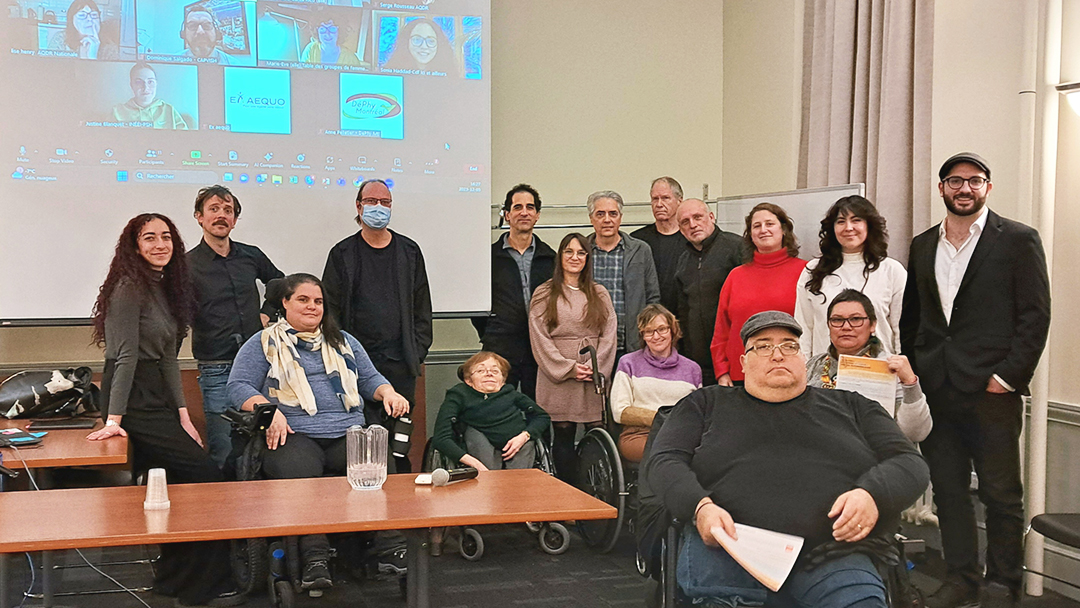
Revolutionizing universal accessibility: a campaign for change in Quebec
CBTIF, $100,000


Increasing the Centre’s sustainability
The Centre has reached the halfway point of its original funding agreement with CMHC. In that time, the growth of the organization has been tremendous. On the one hand, the team now consists of over three dozen individuals working in four distinct business units. On the other, many processes and policies have been instituted to frame the organization’s development and its work product.
The management team worked together to align its work plans and ensure that the transparency required to remain consistent, yet agile, in our service delivery.for the agility and consistency of the Centre’s action was at the heart of its growth. Each of the business unit teams contributed to this exercise and the results translate into a higher degree of confidence, more creative and innovative collaborative thinking and a new standard for how the organization works on its goals and priorities.
Operations
The IT team is engaged in the process of updating the IT system and data platform. The Learning Management System (LMS) required for the Housing School project was also a priority. It is now even possible to apply for a grant for the Nunalingni Piruqpaalirut Fund in Inuktitut. The Centre’s commitment to IT security is reinforced by the pursuit of SOC 2 certification.
Hiring a finance manager in the third quarter strengthened the Centre’s accounting and financial management capabilities. A new, more transparent approach to financial reporting has been adopted and will significantly improve the ability of the organization and the Board of Directors to assess and plan on a quarterly and annual basis.
As the organization grows, this business unit is focused on strengthening and improving internal processes, including a new, more comprehensive employee manual, a talent management plan and training opportunities for all staff in several areas.
Finally, building strong and positive working relationships remains a priority for staff at all levels of the organization. A focus on workplace culture, training and development in key areas of Diversity, Equity and Inclusion, as well as team building continue to be priorities.
Communications
With the Centre’s new strategic plan, the team revisited the communication plan that was already two years old. In addition to strengthening the Centre’s presence in its ecosystem, the new plan aims to raise awareness of the Centre’s goal of cultural transformation in the sector.
Our online presence has grown significantly over the past year, with an impressive average growth of over 160% across digital platforms. This growth can be attributed to a concerted effort to improve our online engagement through strategic initiatives, a targeted communications plan, content adapted to the various platforms and the sustained promotion of the Centre’s tools such as the Organizational Compass.
The Resource Inventory ranks first among the most visited pages on the website. More than 1,500 resources from over 400 partners are available, including resources developed through projects funded by the Centre.
The Centre’s presence at events in the sector continues to be a priority for Communications. In 2023–2024, the organization participated in more than 40 local, provincial, territorial and national events and conferences. We are presenters, moderators, sponsors and hosts. We have a busy information booth that is staffed, and we pride ourselves on our ability to throw a good party. Above all, we value the opportunity to support the events of the many stakeholders who make up our sector.
Governance
The Community Housing Transformation Centre continues to flourish in no small part due to the incredible commitment and support of its Board of Directors, many of whom are leaders in their own organizations and for whom time is a precious commodity. And yet, Directors meet quarterly at Board meetings, two of which are in-person, lasting a day and a half. They contribute hours to the five committees that round out the governance structure: Executive, Finance and Audit, Nominations, Governance and Ethics and of course, Allocations (which dubs itself the “best committee” owing to its ability to see firsthand the array of projects submitted to the Centre for support and funding).
This year was an exceptional one in that it required even more time and dedication as the Directors produced a new Strategic Plan for 2024–2028.
This year, the Board also says goodbye to one of its founding members: Daniel Godin. We are indebted to Daniel for his dedication to the Centre and we sincerely hope our paths will cross in the future.
Strong governance is a cornerstone of any organization. The team at the Centre values its Board of Directors and committee members, their consistent engagement and constant encouragement.
The 2023-2024 team
The board of directors 2023-2024

Jill Atkey
President

Lisa Oliveira
Vice president

Michelle Cooper-Iversen
Treasurer

Christina Maes Nino
Administrator

Ray Sullivan
Administrator

Ren Thomas
Administrator

Daniel Godin
Administrator

Jaimee Gaunce
Administrator

Tim Ross
Administrator

Sandra Turner
Administrator
